#I'm only reading it for the historical value
Explore tagged Tumblr posts
Text
I'm in the process of moving my creative journals into a digital format, beginning with 2018.
Apparently in June of that year, I started reading the Bible, and my commentary is sure something.
'The Plagues of Egypt was a pretty sordid episode for God, I think. He hardened Pharaoh's heart so he'd stop them leaving just so he could prove how badass he was. Whoever wrote that book had problems.'
And 'My favourite part so far is the end of Noah's life in Genesis. He becomes a husbandman and makes wine, gets drunk, and passes out naked. His son (Canaan?) finds him and tells his older brothers, so they come in and cover him up. When Noah wakes up, he knows (Canaan?) has ratted him out to the others, so he curses him. Then he dies. Bonkers. How has that story been left in?'
#jpdoingwords#my commentary on the bible#I didn't make it past Numbers if memory serves#I will get back to it one day maybe#I'm only reading it for the historical value#and in 2018 for research purposes (Stories from Wiacubbin)#I'm a pagan
7 notes
·
View notes
Text
I just came across a tweet saying that Aaron Bushnell--the man who burned himself to death while yelling Free Palestine until he couldn't anymore--will be "in the history books" and that phrase has been coming up a lot. And it chafes me every time I read it, every time I hear it.
Cause, a. no, a lot of this won't be in the American history books. American atrocities, especially those overseas but even those against American people (especially American people of color), don't go in the literal history books. Or the figurative ones. Most American atrocities are wiped from the collective memory... sometimes as soon as they happen. They go unreported (like the first person to self immolate to protest this genocide), they go erased, they go whitewashed, they go falsely recontextualized, and they get twisted into pro-America sentiment--we were right for those atrocities, we were wrong for them but we learned, we didn't learn from it but we felt bad about it and should be comforted for that soreness.
And b. is harder to verbalize but I'm gonna try. It feels... performative in the literal sense. Like we only value what is happening today out of deference for how people in the future will perceive it. We aren't doing anything to change anything NOW, to care about other people NOW, but so that one day... we'll be remembered a caring. Like this man killed himself as gesture, as a move for his legacy.
And I see this phrase--"this will be remembered in the history books"--whipped out in extremely horrific contexts. A child's dead body hanging off a wall, "oh, this will be in the history books." What does that even mean? Was her death worth the historical context? Was it necessary to embellish the horror of it all?
Would the people reading these hypothetical history books not get the wrongness of the genocide without the death of a little girl that you're using as... window dressing?
It just seems so weirdly self satisfied. Like you're eager to note you just witnessed a real moment that people will remember decades from now. When... a lot of people won't which is what is so tragic. A lot of people don't even know it's happening right now.
Because, again, it's not being reported. And when it is being reported it's not being reported honestly.
I'm not saying this well but it just feels like such a gross reaction to things we're seeing in real time.
Why does it have to matter later to matter now? Why is the hypothetical reaction of a history book reader the thing you think about?
A lot of people won't live to read those "history books" because people, right now, aren't doing anything to help them.
4K notes
·
View notes
Text
Damasio, The Trolley Problem and Batman: Under the Hood
Okay so @bestangelofall asked me to elaborate on what I meant by "Damasio's theories on emotions in moral decision-making add another level of depth to the analysis of UTH as a moral dilemma" and I thought this deserved its own post so let's talk about this.
So, idk where everyone is at here (philosophy was mandatory in highschool in my country but apparently that's not the case everywhere so i genuinely have no clue what's common knowledge here, i don't want to like state the obvious but also we should recap some stuff. Also if I'm mentioning a philosopher's or scientist's name without detailing, that means it's just a passing thought/recommendation if you want to read more on the topic.)
First thing first is I've seen said, about jason and the no killing rule, that "killing is always bad that's not up for debate". And I would like to say, that's factually untrue. Like, no matter which side of the debate you are on, there is very much a debate. Historically a big thing even. So if that's not something you're open to hear about, if you're convinced your position is the only correct one and even considering other options is wrong and/or a waste of time... I recommend stopping here, because this only going to make you upset, and you have better stuff to do with your life than getting upset over an essay. In any case please stay civil and remember that this post is not about me debating ethics with the whole bat-tumblr, it's me describing a debate other people have been voicing for a long time, explaining the position Damasio's neuropsychology and philosophy holds in this debate, and analyzing the ethics discussed in Batman: Under the Red Hood in that light. So while I might talk about my personal position in here (because I have an opinion in this debate), this isn't a philosophy post; this is a literature analysis that just so happens to exist within the context of a neuropsychological position on a philosophical debate. Do not try to convince me that my philosophy of ethics is wrong, because that's not the point, that's not what the post is about, I find it very frustrating and you will be blocked. I don't have the energy to defend my personal opinions against everybody who disagrees with me.
Now, let's start with Bruce. Bruce, in Under The Hood and wrt the no kill rule (not necessarily all of his ethics, i'm talking specifically about the no kill rule), is defending a deontological position. Deontology is a philosophy of ethics coined by christian🧷 18th century German philosopher Immanuel Kant. The philosophy of ethics asks this question: what does it mean to do a good action? And deontology answers "it means to do things following a set of principles". Basically Kant describes what are "absolute imperatives" which are rules that hold inherent moral values: some things are fundamentally wrong and others are bad. Batman's no-kill rule is thus a categorical imperative: "Though Shall not Kill"🧷, it is always wrong to kill. (Note that I am not saying Bruce is kantian just because he has a deontology: Kant explained the concept of deontological ethics, and then went up to theorize his own very specific and odd brand of deontology, which banned anything that if generalized would cause the collapse of society as well as, inexplicably, masturbation. Bruce is not Kantian, he's just, regarding the no kill rule, deontological. Batman is still allowed to wank, don't worry.)
In this debate, deontological ethics are often pit up against teleological ethics, the most famous group of which being consequentialism, the most famous of consequentialisms being utilitarism. As the name indicates, consequentialist theories posit that the intended consequences of your actions determine if those actions were good or not. Utilitarism claims that to do good, your actions should aim to maximise happiness for the most people possible. So Jason, when he says "one should kill the Joker to prevent the thousands of victims he is going to harm if one does not kill him", is holding a utilitarian position.
The debate between deontology and utilitarism has held many forms, some fantastical and some with more realistic approaches to real life like "say you're hiding from soldiers and you're holding a baby that's gonna start crying, alerting the soldiers and getting everyone in your hideout massacred. Do you muffle the baby, knowing it will suffocate and kill it?" or "say there's a plague going on and people are dying and the hospital does not have enough ventilators, do you take the one off of the comatose patient with under 0.01% chance of ever waking up to give it to another patient? What about 1%?", etc, etc. The most famous derivative of this dilemma, of course, being the infamous trolley problem.
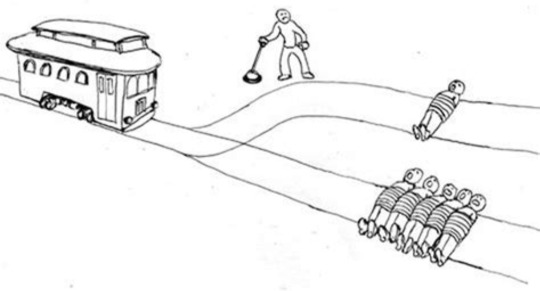
This is what is meant when we say "the UTH confrontation is a trolley problem." The final confrontation at the warehouse is a variation, a derivative of the utilitarian dilemma that goes as follows: "if someone was trying to kill someone in front of you, and that murder would prevent the murder of thousands, should you try to stop that murder or let it happen?"
Now, here's a question: why are there so many derivatives of the trolley problem? Why do philosophers spend time pondering different versions of the same question instead of solving it?
My opinion (and the one of much, much smarter people whose name i forgot oops) is that both systems fail at giving us a satisfying, clean-cut reply. Now, most people have a clean-cut answer to the trolley problem as presented here: me personally, I lean more towards utilitarianism, and I found it logical to pull the lever. But altering the exact situation makes me change my answer, and there is very often a point where people, no matter their deontological or utilitarian velleities, change their answer. And that's interesting to examine.
So let's talk about deontology. Now my first gripe with deontology it's that it posits a set of rules as absolute and I find that often quite arbitrary. 🧷 Like, it feels a little like mathematical axioms, you know? We build a whole worldview on the assumption that these rules are inherently correct and the best configuration because it feels like it makes sense, and accidentally close our mind to the world of non-euclidian ethics. In practice, here are some situations in which a deontologist might change their mind: self-defense killing, for example, is often cited as "an exception to the rule", making that rule de facto non-universal; and disqualifying it as an absolute imperative. Strangely enough, people will often try to solve the trolley problem by deciding to kill themselves by jumping on the tracks 🧷 which is actually a utilitarian solution: whether you're pulling the lever or you're jumping on the tracks, you are choosing to kill one person to stop the people from being run over. Why does it matter if it's you or someone else you're killing? You're still killing someone. Another situation where people may change their answer would be, like "what if you needed to save your children but to do so you had to kill the ceo of united healthcare?" Note that these are only examples for killing, but the biggest issue is that deontology preaches actions are always either good or wrong, and the issue with that lack of nuance is best illustrated with the kantian problem regarding the morality of lying: let's say it's the holocaust and a family of jews is hiding in your house. Let's say a nazi knocks on your door and asks if there are people hiding in your house. You know if you tell the truth, the jews in your house will be deported. In that situation, is it morally correct to lie? Now, Kant lived before the Holocaust, but in his time there was a similar version of this problem that had been verbalised (this formulation is the best-known derivative of this problem btw, I didn't invent it) and Kant's answer, I kid you not, was still "no it is not morally acceptable to lie in that situation".
And of course, there are variations of that problem that play with the definition of killing- what defines the act of killing and can the other circumstances (like if there's a person you need to save) alter that definition? => Conclusion: there is a lot more nuance to moral actions than what a purely deontological frame claims, and pushing deontology to its limits leads to situations that would feel absurd to us.
Now let's take utilitarianism to its own limits. Say you live in a world where healthcare has never been better. Now say this system is so because there is a whole small caste of people who have been cloned and genetically optimized and conditioned since birth so that their organs could be harvested at any given moment to heal someone. Let's say this system is so performant it has optimised this world's humanity's general well-being and health, leading to an undeniable, unparalleled positive net-worth for humanity. Here's the question: is this world a utopia or a dystopia? Aka, is raising a caste of people as organ cattle morally acceptable in that situation? (Note: Because people's limits on utilitarianism vary greatly from one person to another, I chose the most extreme example I could remember, but of course there are far more nuanced ones. Again, I wasn't the one to come up with this example. If you're looking for examples of this in fiction, i think the limits of utilitarianism are explored pretty interestingly in the videogame The Last of Us).
=> Conclusion: there is a lot more nuance to moral actions than what a purely utilitarian frame claims, and pushing utilitarism to its limits leads to situations that would feel absurd to us.
This leads us back to Under the Hood. Now because UTH includes a scathing criticism of Batman's no kill rule deontology, but Jason is also presented as a villain in this one, my analysis of the whole comic is based on the confrontation between both of these philosophies and their failures, culminating in a trolley dilemma type situation. So this is why it makes sense to have Bruce get mad at Jason for killing Captain Nazi in self-defense: rejecting self-defense, even against nazis, is the logical absurd conclusion of deontology. Winick is simply taking Bruce's no-kill rule to the limit.
And that's part of what gets me about Jason killing goons (aside from the willis todd thing that should definitely have been addressed in such a plot point.) It's that it feels to me like Jason's philosophy is presented as wrong because it leads to unacceptable decisions, but killing goons is not the logical absurd conclusion of utilitarianism. It's a. a side-effect of Jason's plot against Bruce and/or, depending on how charitable you are to either Jason's intelligence or his morals, b. a miscalculation. Assuming Jason's actions in killing goons are a reflection of his moral code (which is already a great assumption, because people not following their own morals is actually the norm, we are not paragons of virtue), then this means that 1) he has calculated that those goons dying would induce an increase in general global human happiness and thus 2) based on this premise, he follows the utilitarian framework and thus believes it's moral to kill the goons. It's the association of (1) and (2) that leads to an absurd and blatantly immoral consequence, but since the premise (1) is a clear miscalculation, the fact that (1) & (2) leads to something wrong does not count as a valid criticism of (2): to put it differently, since the premise is wrong, the conclusion being wrong does not give me any additional info on the value of the reasoning. This is a little like saying "Since 1+ 3= 5 and 2+2=4, then 1+3+2+2 = 9". The conclusion is wrong, but because the first part (1+3=5) is false, the conclusion being wrong does not mean that the second part (2+2 =4) is wrong. So that's what frustrates me so much when people bring up Jason killing goons as a gotcha for criticizing his utilitarian philosophy, because it is not!! It looks like it from afar but it isn't, which is so frustrating because, as stated previously, there are indeed real limits to utilitarianism that could have been explored instead to truly level the moral playing field between Jason and Bruce.
Now that all of this is said and done, let's talk about what in utilitarianism and deontology makes them flawed and, you guessed it, talk some about neuropsychology (and how that leads to what's imo maybe the most interesting thing about the philosophy in Under the Hood.)
In Green Arrow (2001), in an arc also written by Judd Winick, Mia Dearden meets a tortured man who begs her to kill him to save Star City (which is being massacred), and she kills him, then starts to cry and begs Ollie for confirmation that this was the right thing to do. Does this make Mia a utilitarian? If so, then why did she doubt and cry? Is she instead a deontologist, who made a mistake?
In any case, the reason why Mia's decision was so difficult for her to make and live with, and the reason why all of these trolley-adjacent dilemmas are so hard, is pretty clear. Mia's actions were driven by fear and empathy. It's harder to tolerate sacrificing our own child to avoid killing, it's harder to decide to sacrifice a child than an adult, a world where people are raised to harvest their organs feels horrible because these are real humans we can have empathy towards and putting ourselves in their shoes is terrifying... So we have two "perfectly logical" rational systems toppled by our emotions. But which is wrong: should we try to shut down our empathy and emotions so as to always be righteous? Are they a parasite stopping us from being true moral beings?
Classically, we (at least in my culture in western civilization) have historically separated emotions from cognition (cognition being the domain of thought, reasoning, intelligence, etc.) Descartes, for example, was a philosopher who highlighted a dualist separation of emotion and rationality. For a long time this was the position in psychology, with even nowadays some people who think normal psychologists are for helping with emotions and neuropsychologists are for helping with cognition.(I will fight these people with a stick.) Anyway, that position was the predominant one in psychology up until Damasio (not the famous writer, the neuropsychologist) wrote a book named Descartes' Error. (A fundamental of neuropsychology and a classic that conjugates neurology, psychology and philosophy: what more could you ask for?)
Damasio's book's title speaks for itself: you cannot separate emotion from intelligence. For centuries we have considered emotions to be parasitic towards reasoning, (which even had implications on social themes and constructs through the centuries 📌): you're being emotional, you're letting emotions cloud your judgement, you're emotionally compromised, you're not thinking clearly... (Which is pretty pertinent to consider from the angle of A Death in the Family, because this is literally the reproach Bruce makes to Jason). Damasio based the book on the Damasio couple's (him and his wife) study of Phineas Gage, a very, very famous case of frontal syndrome (damage to the part of the brain just behind the forehead associated with executive functions issues, behavioural issues and emotional regulation). The couple's research on Gage lead Damasio, in his book, to this conclusion: emotions are as much of a part of reasoning and moral decision-making as "cold cognition" (non emotional functioning). Think of it differently: emotional intelligence is a skill. Emotions are tools. On an evolutionary level, it is good that we as people have this skill to try and figure out what others might think and do. That's useful. Of course, that doesn't mean that struggling with empathy makes you immoral, but we people who struggle with empathy have stories of moments where that issue has made us hurt someone's feelings on accident, and it made us sad, because we didn't want to hurt their feelings. On an evolutionary level (and this is where social Darwinism fundamentally fails) humanity has been able to evolve in group and in a transgenerational group (passing knowledge from our ancestors long after their death, belonging to a community spread over a time longer than our lifetime) thanks to social cognition (see Tomasello's position on the evolution of language for more detail on that), and emotions, and "emotional intelligence" is a fundamental part of how that great system works across the ages.
And that's what makes Batman: Under the Hood brilliant on that regard. If I have to make a hypothesis on the state of Winick's knowledge on that stuff, I would say I'm pretty sure he knew about the utilitarism vs deontology issue; much harder to say about the Damasio part, but whether he's well-read in neuropsychology classics or just followed a similar line of reasoning, this is a phenomenally fun framework to consider UTH under.
Because UTH, and Jason's character for the matter, refuse to disregard emotions. Bruce says "we mustn't let ourselves get clouded by our emotions" and Jason, says "maybe you should." I don't necessarily think he has an ethical philosophy framework for that, I still do believe he's a utilitarian, but he's very emotion-driven and struggling to understand a mindframe that doesn't give the same space to emotions in decision-making. And as such, Jason says "it should matter. If the emotion was there, if you loved me so much, then it should matter in your decision of whether or not to let the Joker die, that it wasn't just a random person that he killed, but that he killed your son."
And Bruce is very much doubling down on this mindset of "I must be stronger than my feelings". He is an emotionally repressed character. He says "You don't understand. I don't think you've ever understood", and it's true, Jason can't seem to understand Bruce's position, there's something very "if that person doesn't show love in my perspective and understanding of what love is then they do not love me" about his character that I really appreciate. But Bruce certainly doesn't understand either, because while Jason is constantly asking Bruce for an explanation, for a "why do you not see things the way I do" that could never satisfy him, Bruce doesn't necessarily try to see things the way Jason does. And that's logical, since Jason is a 16 years old having a mental breakdown, and Bruce is a grown man carrying on the mission he has devoted himself to for years, the foundation he has built his life over. He can't allow himself to doubt, and why would he? He's the adult, he's the hero, he is, honestly, a pretty stubborn and set-in-his-ways character. So, instead of rising to the demand of emotional decision-making, Bruce doubles down on trying to ignore his feelings. And Jason, and the story doesn't let him. Bludheaven explodes. This induces extremely intense feelings in Bruce (his son just got exploded), which Jason didn't allow him to deal with, to handle with action or do anything about; Jason says no you stay right there, with me, with those emotions you're living right now, and you're making a decision. And there's the fact Bruce had a mini-heart attack just before thinking Jason was dead again. And there's the fact he mourned Jason for so long, and Stephanie just died, and Tim, Cass and Oracle all left, and the Joker is right there, and Jason puts a gun in his hands (like the gun that killed his parents)... All of that makes it impossible for Bruce to disregard his emotions. The same way Jason, who was spilling utilitarian rhetoric the whole time, is suddenly not talking about the Joker's mass murder victims but about he himself. The same way Jason acts against his own morals in Lost Days by sparing the Joker so they can have this confrontation later. That's part of why it's so important to me that Jason is crying in that confrontation.
Bruce's action at the end of the story can be understood two ways:
-he decides to maim/kill Jason to stop the insupportable influx of emotions, and him turning around is his refusal to look at his decision (looking away as a symbol of shame): Bruce has lost, in so that he cannot escape the dilemma, he succumbs to his emotions and acts against his morals.
-the batarang slicing Jason's throat is an accident: he is trying to find a way out of the dilemma, a solution that lets him save his principles, but his emotions cloud his judgement (maybe his hand trembles? Maybe his vision is blurry?). In any case, he kills his son, and it being an accident doesn't absolve him: his emotions hold more weight than his decision and he ends up acting against his morals anyway.
It's a very old story: a deontologist and a utilitarian try to solve the trolley problem, and everyone still loses. And who's laughing? The nihilist, of course. To him, nothing has sense, and so nothing matters. He's wrong though, always has been. That's the lesson I'm taking from Damasio's work. That's the prism through which I'm comparing empathy to ethics in Levinas' work and agape in Compté-Sponsville's intro to philosophy through.
It should matter. It's so essential that it matters. Love, emotions, empathy: those are fundamental in moral evaluation and decision making. They are a feature, not a bug. And the tragedy is when we try to force ourselves to make them not matter.
Anyway so that was my analysis of why Damasio's position on ethics is so fun to take in account when analysing UTH, hope you found this fun!
#dc#jason todd#dc comics#red hood#under the red hood#anti batman#anti bruce wayne#(< for filtering)#jason todd meta#neuropsychology meta#now with the philosophy extension!!#once again having very intense thoughts about Under The Hood#me talking about the “killing goons” part: this comic is so infuriating#me talking about the final confrontation: this is the greatest comic ever 😭😭#winick stop toying with my emotions challenge#anyway I put a couple of pins on some of the ideas in there don't worry about it#also i was told that color coding helped with clarity so hopefully that's still the case!
189 notes
·
View notes
Note
hi, i hope you dont mind me asking this question! i often come across lists of reading recommendations for communists, and they are usually focused entirely on communist theory. which is important and im already on that, but i wonder if you also have recs for learning about history? especially the history of the soviet union, but also other past and present socialist states. i sometimes find myself reading theory and understanding the concepts in a vacuum, but with very little understanding of the historical context they were written in, if that makes any sense. and id like to get a basic grasp of the history of various socialist projects that isnt just the typical western "the ussr was evil!!!!" thing
Hi, historical context is indeed very important for works of theory, especially if it's more than a hundred years old. Lenin's What is to be Done, for example, is very conditioned by its historical context of Russia still being predominantly feudal, with only a timid appearance of the proletariat in St. Petersburg and Moscow, and therefore the very first trade unions, which he talks about. The understanding of these texts is amplified, and quite often enabled by knowing at least the basic historical context. Below I'll list the historical works I've read (and others) with some commentary, but I encourage anyone who has something to add to do so, since I am as of only recently getting more into historiography.
Anything by Anna Louise Strong (I've read The Soviets Expected it (1941) and In North Korea (1941), there's also The New Lithuania (1941), The Stalin Era (1956) and When Serfs Stood Up in Tibet (1959) for example). Her works, which I'd consider primary sources since they are written from her own experience witnessing events and talking to a lot of people, are extremely useful if you wish to form an idea about how some aspects of socialist states worked. The limitation of her works also resides in this specificity and closeness, these are not works that present a broad view of long processes, but a slice of the present with the sufficient historical context. They are still very, very good.
The Open Veins of Latin America (Spanish versrion), by Eduardo Galeno (1971). This one is focused on the history of imperialism in Latin America, how it evolved from the moment the first Spanish foot touched ground to the time it was written in (It talks about Allende before he was assassinated but after achieving power, for example). Perhaps it's not exactly what you're looking for, but it contains very important general context for any social movement that has happened since 1492 to 1971
The Triumph of Evil, by Austin Murphy (2002). I have mixed feelings about this book. While it insists on this weird narrative of absolute evil, which IMO takes away a lot of value from the overall points made, it is an astonishingly in-depth analysis of the economic performance and general merit of socialist systems against their capitalist counterparts. Most of the book is dedicated to comparing the GDR to the FRG, and both the economic and social data it exposes was very eye-opening to me when I read it about 2 years ago. If you can wade through the moralism (especially the beginning of the introduction), it's a gem. I've posted pictures of its very detailed index under the cut :)
Blackshirts and Reds, Michael Parenti (1997). Despite the very real criticisms levied against this book, like its mischaracterization of China, it is still a landmark work. Synthetically, it exposes the relationship between fascism, capitalism and communism.
Red Star Over the Third World, Vijay Prashad (2019); The Russian Revolution: A View from the Third World, Walter Rodney (2018). I'm lumping these two together (full disclosure, as of writing I'm about four fifths of the way through RSOtTW) because they deal with the same topic, Prashad being influenced by Rodney as well. Like both titles imply, they deal with the effects the October revolution had on the exploited peoples of the world, which is a perspective that's often lost. Through this, they (at least Prashad) also talk about the early USSR and how it functioned. For example, up until reading Red Star, I hadn't even heard of the 1920 Congress of The Toilers of the East in Baku, or the Congress of the Women of the East.
From here on I'll link works that I haven't (yet) read, but I have seen enough trusted people talk about them to include them
How to Cast a God into Hell: The Khrushchev Report, by Domenico Losurdo (2008). This one talks about how the period of Stalin was twisted and exaggerated through destalinization.
Devils in Amber, by Philips Bonoski (1992). This is about the Baltics and their historical trajectory from before WW1 to the destruction of the USSR (I'm not very sure on those two limits, perhaps they fluctuate a bit, but it definitely covers from WW1 to the 60s)
Socialism Betrayed, by Roger Keeran and Thomas Kenny (2004). This one deals with the process leading up to and the destruction of the USSR itself.
The Jakarta Method, Vincent Bevins (2020). This is about the methods the US used in the second half of the 20th century to stamp out, prevent, or otherwise sabotage communist movements and other democratic anti-imperialist movements.
I know some of these aren't specifically about socialist states, which is what you asked, but the history of its opposition is just as important to understand because it always exists as a condition to these countries' development and policies chosen.



450 notes
·
View notes
Note
I'm trying to find the quote about how Jews are painted with the worst sins a generation can imagine. That it used to be communism, now it's settler colonialism - but I cant find it anywhere! Do you know the one I'm talking about? I feel like you might know
Hi @counterpunches , thanks for your question. I believe you are thinking of the keynote speech by the great Rabbi Lord Jonathan Sacks z''l that he delivered before the European Parliament in 2016.
Since Rabbi Sacks delivered his speech, of course, Europe, the UK, and Ireland have continued to descend into the chaos of their own self-destruction, of which Jew-hate is the first major symptom.
These goyishe freaks think they are just having "fun" celebrating Islamofascist terrorism, glorifying in the slaughter of Jews, and attacking the Jews in their own communities, but really these goyim are DIGGING THEIR OWN GRAVES.
Here is the video of Rabbi Sacks' speech. I've also provided the transcript below under a Read More, and I've bolded the sections that relate to your question.
I recommend that everyone listen to Rabbi Sacks' speech. Nearly 10 years after he delivered this speech, his words could not be more true:
If Europe lets itself be dragged down that road again, this will be the story told in times to come. First they came for the Jews. Then for the Christians. Then for the gays. Then for the atheists. Until there was nothing left of Europe’s soul but a distant, fading memory.
Today I have tried to give voice to those who have no voice. I have spoken on behalf of the murdered Roma, Sinti, gays, dissidents, the mentally and physically handicapped, and a million and a half Jewish children murdered because of their grandparents’ religion. In their name, I say to you: You know where the road ends. Don’t go down there again.
You are the leaders of Europe. Its future is in your hands. If you do nothing, Jews will leave, European liberty will die, and there will be a moral stain on Europe’s name that all eternity will not erase.
Stop it now, while there is still time.
youtube
Transcript of Rabbi Lord Jonathan Sacks' z''l speech:
The hate that begins with Jews never ends with Jews. That is what I want us to understand today. It wasn’t Jews alone who suffered under Hitler. It wasn’t Jews alone who suffered under Stalin. It isn’t Jews alone who suffer under ISIS or Al Qaeda or Islamic Jihad. We make a great mistake if we think antisemitism is a threat only to Jews. It is a threat, first and foremost, to Europe and to the freedoms it took centuries to achieve.
Antisemitism is not about Jews. It is about antisemites. It is about people who cannot accept responsibility for their own failures and have instead to blame someone else. Historically, if you were a Christian at the time of the Crusades, or a German after the First World War, and saw that the world hadn’t turned out the way you believed it would, you blamed the Jews. That is what is happening today. And I cannot begin to say how dangerous it is. Not just to Jews but to everyone who values freedom, compassion and humanity.
The appearance of antisemitism in a culture is the first symptom of a disease, the early warning sign of collective breakdown. If Europe allows antisemitism to flourish, that will be the beginning of the end of Europe. And what I want to do in these brief remarks is simply to analyse a phenomenon full of vagueness and ambiguity, because we need precision and understanding to know what antisemitism is, why it happens, why antisemites are convinced that they are not antisemitic.
First let me define antisemitism. Not liking Jews is not antisemitism. We all have people we don’t like. That’s OK; that’s human; it isn’t dangerous. Second, criticising Israel is not antisemitism. I was recently talking to some schoolchildren and they asked me: is criticising Israel antisemitism? I said "No" and I explained the difference. I asked them, "Do you believe you have a right to criticise the British government?" They all put up their hands. Then I asked, "Which of you believes that Britain has no right to exist?" No one put up their hands. "Now you know the difference," I said, and they all did.
Antisemitism means denying the right of Jews to exist collectively as Jews with the same rights as everyone else. It takes different forms in different ages.
In the Middle Ages, Jews were hated because of their religion. In the nineteenth and early twentieth century they were hated because of their race. Today they are hated because of their nation state, the state of Israel. It takes different forms but it remains the same thing: the view that Jews have no right to exist as free and equal human beings.
If there is one thing I and my contemporaries did not expect, it was that antisemitism would reappear in Europe within living memory of the Holocaust. The reason we did not expect it was that Europe had undertaken the greatest collective effort in all of history to ensure that the virus of antisemitism would never again infect the body politic. It was a magnificent effort of antiracist legislation, Holocaust education and interfaith dialogue. Yet antisemitism has returned despite everything.
On 27 January 2000, representatives of 46 governments from around the world gathered in Stockholm to issue a collective declaration of Holocaust remembrance and the continuing fight against antisemitism, racism and prejudice. Then came 9/11, and within days conspiracy theories were flooding the internet claiming it was the work of Israel and its secret service, the Mossad. In April 2002, on Passover, I was in Florence with a Jewish couple from Paris when they received a phone call from their son, saying, “Mum, Dad, it’s time to leave France. It’s not safe for us here anymore.”
In May 2007, in a private meeting here in Brussels, I told the three leaders of Europe at the time, Angela Merkel, President of the European Council, Jose Manuel Barroso, President of the European Commission, and Hans-Gert Pöttering, President of the European Parliament, that the Jews of Europe were beginning to ask whether there was a future for Jews in Europe.
That was more than nine years ago. Since then, things have become worse. Already in 2013, before some of the worst incidents, the European Union Agency for Fundamental Rights found that almost a third of Europe’s Jews were considering emigrating because of antisemitism. In France the figure was 46 percent; in Hungary 48 percent.
Let me ask you this. Whether you are Jewish or Christian, Muslim: would you stay in a country where you need armed police to guard you while you prayed? Where your children need armed guards to protect them at school? Where, if you wear a sign of your faith in public, you risk being abused or attacked? Where, when your children go to university, they are insulted and intimidated because of what is happening in some other part of the world? Where, when they present their own view of the situation they are howled down and silenced?
This is happening to Jews throughout Europe. In every single country of Europe, without exception, Jews are fearful for their or their children’s future. If this continues, Jews will continue to leave Europe, until, barring the frail and the elderly, Europe will finally have become Judenrein.
How did this happen? It happened the way viruses always defeat the human immune system, namely, by mutating. The new antisemitism is different from the old antisemitism, in three ways. I’ve already mentioned one. Once Jews were hated because of their religion. Then they were hated because of their race. Now they are hated because of their nation state. The second difference is that the epicentre of the old antisemitism was Europe. Today it’s the Middle East and it is communicated globally by the new electronic media.
The third is particularly disturbing. Let me explain.
It is easy to hate, but difficult publicly to justify hate. Throughout history, when people have sought to justify antisemitism, they have done so by recourse to the highest source of authority available within the culture. In the Middle Ages, it was religion. So we had religious anti-Judaism. In post-Enlightenment Europe it was science. So we had the twin foundations of Nazi ideology, Social Darwinism and the so-called Scientific Study of Race. Today the highest source of authority worldwide is human rights. That is why Israel—the only fully functioning democracy in the Middle East with a free press and independent judiciary—is regularly accused of the five cardinal sins against human rights: racism, apartheid, crimes against humanity, ethnic cleansing and attempted genocide.
The new antisemitism has mutated so that any practitioner of it can deny that he or she is an antisemite. After all, they’ll say, I’m not a racist. I have no problem with Jews or Judaism. I only have a problem with the State of Israel. But in a world of 56 Muslim nations and 103 Christian ones, there is only one Jewish state, Israel, which constitutes one-quarter of one per cent of the land mass of the Middle East. Israel is the only one of the 193 member nations of the United Nations that has its right to exist regularly challenged, with one state, Iran, and many, many other groups, committed to its destruction.
Antisemitism means denying the right of Jews to exist as Jews with the same rights as everyone else. The form this takes today is anti-Zionism. Of course, there is a difference between Zionism and Judaism, and between Jews and Israelis, but this difference does not exist for the new antisemites themselves. It was Jews not Israelis who were murdered in terrorist attacks in Toulouse, Paris, Brussels and Copenhagen.
Anti-Zionism is the antisemitism of our time.
In the Middle Ages Jews were accused of poisoning wells, spreading the plague, and killing Christian children to use their blood. In Nazi Germany they were accused of controlling both capitalist America and communist Russia. Today they are accused of running ISIS as well as America. All the old myths have been recycled, from the Blood Libel to the Protocols of the Elders of Zion. The cartoons that flood the Middle East are clones of those published in Der Sturmer one of the primary vehicles of Nazi propaganda between 1923 and 1945.
The ultimate weapon of the new antisemitism is dazzling in its simplicity. It goes like this:
The Holocaust must never happen again. But Israelis are the new Nazis; the Palestinians are the new Jews; all Jews are Zionists. Therefore the real antisemites of our time are none other than the Jews themselves.
And these are not marginal views. They are widespread throughout the Muslim world, including communities in Europe, and they are slowly infecting the far left, the far right, academic circles, unions, and even some churches.
Having "cured" itself of the virus of antisemitism, Europe is being reinfected by parts of the world that never went through the self-reckoning that Europe undertook once the facts of the Holocaust became known.
How do such absurdities come to be believed? This is a vast and complex subject, and I have written a book about it, but the simplest explanation is this. When bad things happen to a group, its members can ask one of two questions: “What did we do wrong?” or “Who did this to us?” The entire fate of the group will depend on which it chooses.
If it asks, “What did we do wrong?” it has begun the self-criticism essential to a free society. If it asks, “Who did this to us?” it has defined itself as a victim. It will then seek a scapegoat to blame for all its problems. Classically this has been the Jews.
Antisemitism is a form of cognitive failure, and it happens when groups feel that their world is spinning out of control.
It began in the Middle Ages, when Christians saw that Islam had defeated them in places they regarded as their own, especially Jerusalem. That was when, in 1096, on their way to the Holy Land, the Crusaders stopped first to massacre Jewish communities in Northern Europe. It was born in the Middle East in the 1920s with the collapse of the Ottoman Empire. Antisemitism re-emerged in Europe in the 1870s during a period of economic recession and resurgent nationalism. And it is re-appearing in Europe now for the same reasons: recession, nationalism, and a backlash against immigrants and other minorities. Antisemitism happens when the politics of hope gives way to the politics of fear, which quickly becomes the politics of hate.
This then reduces complex problems to simplicities. It divides the world into black and white, seeing all the fault on one side and all the victimhood on the other. It singles out one group among a hundred offenders for the blame. The argument is always the same. We are innocent; they are guilty. It follows that if we are to be free, they, the Jews or the state of Israel, must be destroyed. That is how the great crimes begin.
Jews were hated because they were different. They were the most conspicuous non-Christian minority in a Christian Europe. Today they are the most conspicuous non-Muslim presence in an Islamic Middle East.
Antisemitism has always been about the inability of a group to make space for difference. No group that adopts it will ever, can ever, create a free society.
So I end where I began:
The hate that begins with Jews never ends with Jews. Antisemitism is only secondarily about Jews. Primarily it is about the failure of groups to accept responsibility for their own failures, and to build their own future by their own endeavours. No society that has fostered antisemitism has ever sustained liberty or human rights or religious freedom. Every society driven by hate begins by seeking to destroy its enemies, but ends by destroying itself.
Europe today is not fundamentally antisemitic. But it has allowed antisemitism to enter via the new electronic media. It has failed to recognise that the new antisemitism is different from the old. We are not today back in the 1930s. But we are coming close to 1879, when Wilhelm Marr founded the League of Anti-Semites in Germany; to 1886 when Édouard Drumont published La France Juive; and 1897 when Karl Lueger became Mayor of Vienna. These were key moments in the spread of antisemitism, and all we have to do today is to remember that what was said then about Jews is being said today about the Jewish state.
The history of Jews in Europe has not always been a happy one. Europe’s treatment of the Jews added certain words to the human vocabulary: disputation, forced conversion, inquisition, expulsion, auto da fe, ghetto, pogrom and Holocaust, words written in Jewish tears and Jewish blood. Yet for all that, Jews loved Europe and contributed to it some of its greatest scientists, writers, academics, musicians, shapers of the modern mind.
If Europe lets itself be dragged down that road again, this will be the story told in times to come. First they came for the Jews. Then for the Christians. Then for the gays. Then for the atheists. Until there was nothing left of Europe’s soul but a distant, fading memory.
Today I have tried to give voice to those who have no voice. I have spoken on behalf of the murdered Roma, Sinti, gays, dissidents, the mentally and physically handicapped, and a million and a half Jewish children murdered because of their grandparents’ religion. In their name, I say to you: You know where the road ends. Don’t go down there again.
You are the leaders of Europe. Its future is in your hands. If you do nothing, Jews will leave, European liberty will die, and there will be a moral stain on Europe’s name that all eternity will not erase.
Stop it now, while there is still time.
#jumblr#islamist antisemitism#christian antisemitism#jewish history#rabbi lord jonathan sacks#may his memory be for a blessing
178 notes
·
View notes
Text
miku.earth update: September 15
Hi all! This is a lil progress update for those interested. In a rush? Here's the cliff notes!
The map site at miku.earth is back: sorry for the delay in fixing it! Check it out: it has six hundred Mikus!
Including the hyuge ol' queue, we've collected over 3,100 mikus!
Representation is important! I've been using some fancy stats to avoid bias. To that end, please help make sure we have a Miku in every African country!
oh hey! you clicked 'keep reading!' well hi! here is your Miku Direct. . The map site, miku.earth, is back!
I ran into a kinda complex issue and it was a whole Thing. I was working on the site the whole time though! Sorry for the delay, and I hope you enjoy now it's back up and running.
This site has six hundred Mikus on the map, and more are added each week. It was recently rebuilt from scratch (fun fact! I am not a web developer) so I hope it is far zippier and less glitchy as before. A mobile-friendly version is coming soon too!
Also: check out the new search feature! In addition to the title, artist name and region(s), it can also search for the categories indigenous and historic!
cw: this video involves moving around a 2D map with some speed. on the site itself site, this only happens when you hit the Enter key.
We've reached more than 3,100 mikus!
Even at its Miku-per-hour speed, the queue will continue until 2025 at least! This is with thanks to an incredible number of contributions, including donations of literal thousands of links.
Thank you so much to @awnowimsad, @worldmikuposter @the-hatsune-miku-trend, @communist-hatsunemiku, @council-of-beetroot, L-A and a whole host of DMers and emailers for helping get this far.
Oh and by the way: over two thirds of the collection are tumblr posts! Given that this was originally a twitter trend… if you know any Twitter users who are into this trend, please reach out. Some napkin math tells me there are at least 10,000 works of art total out there, which is, by the way, surreal. Let's make sure not a single one is lost.
If you're super curious, the collection is public! I have some tools to auto-annotate (I do not want RSI), but be aware the backlog isn't vetted.
Representation is important!
Fun as this trend is, this project was always intended as a serious study into how people represent their own culture through artwork. I'm no anthropologist, but I feel it is important to make sure this collection is respectful and bias-free. If we're to represent the world, we have to avoid underrepresentation!
To that end I've used some fancy statistics to calculate a "representation value" for each country. Here's a table if you're into the stats of it! This info is handy to help me with the queue – especially with tweets as they're a lil more effort than a carefully-tagged reblog. Of course, Indigenous, hyperspecific and low-note Mikus get priority.
And, well, of course you can see on the site there are purple regions for countries still missing a Miku. In particular, please help me make sure every country in Africa is represented.
Thank you for reading!
Phew! That was a lot. If you're still curious, please check the behind-the-scenes and source code. I work in the open! Even if my code is probably messy.
And if you're a programmer, issues and pull requests are welcome! This is actually a static site, so it's purdy easy to develop.
346 notes
·
View notes
Text
Fantasy Guide to Education

I'm always asked what sort of education different people recieve throughout different historical eras and since I'm heading back to college soon, I thought it was high time I made this guide.
Disparity

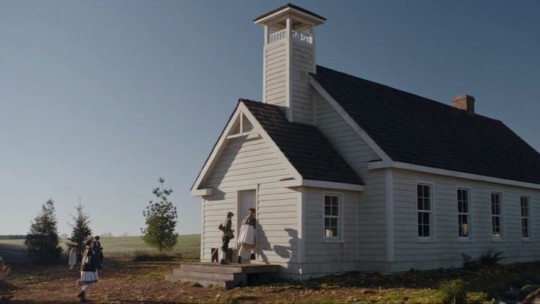
Education is viewed as a right by many but for some and thoughout history it was a privilege. For the wealthy and those of high status, education can be easily accessed. They can afford to tailor an education to fit their needs, they can hire tutors, and they can afford tuitions to top schools. For the poor, education was a luxury. However this doesn't mean that it was available. Some communities would fund a school or send their children to a local teacher - usually they had to pay a daily fee or at least bring kindling for the heating. Many poorer children also worked so they could not attend school consistently or were pulled out very early into their education. However, some poorer students could gain access to high level education if they were extremely bright or caught the attention of a wealthy benefactor who could fund their education.
Education as a Weapon

Education could also be banned for certain groups in society. It could be illegal to fund schools or host gatherings for students of a certain background, race, religion or gender. Education against the law could be punished by imprisonment, exile or execution. This is a measure usually taken by oppressive governments in order to follow a moral code or restrict the betterment of a certain group. An example would be the Irish Catholics under the Penal Laws.
On the otherhand, there is education that is influenced by the state to inject certain values, moralities and Opinions into a population. This is the intense restriction of reading material, removal of books that contest the teachings of the government or the kidnap of children from their culture, in order to forcibly educated them in alignment to their beliefs. An example would be the residental schools of North America and Canada and the AHS schools of Nazi Germany.
Content
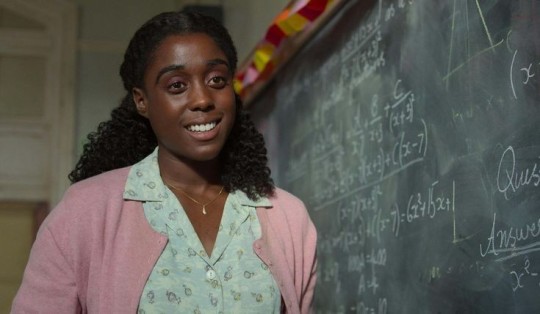
As above, content of what children learn usually falls into a certain category. This is also true for the education offered to the wealthy and the poor. The poor would be offered a basic education, learning literacy and arithmetic, usually with an expectation that the children would not go on to any jobs that needs a broader education. Any higher education would be hard to obtain because of cost and the discriminatory view of the enrollment panels. The wealthy would have access to an array of different subjects including: The arts (drawing, music, painting, poetry, dancing), sports (riding, martial skills, rowing, hunting), arithmetic, geography, languages, geography and history. While progression to higher education will still be difficult, any affluent families are legacies of prestigious colleges or can make a donation to grease a few palms. These schools would be where the wealthy make lifelong connections and get springboarded toward opportunities.
Private Tutoring
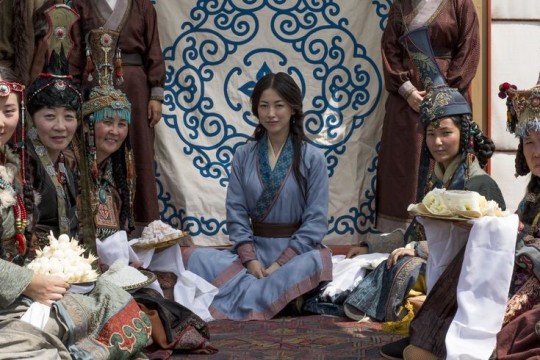
Whilst some affluent, aristocratic and Royal families send their children to schools, private tutoring in the home was a popular choice. Children would be educated at home but tutors who either lived in the home or come to the house. The children would be educated alongside siblings or the children of courtiers or neighbours. Private tutoring sessions would often be the only education for upper class women recieved, taught by governesses and tutors.
Premises and Equipment
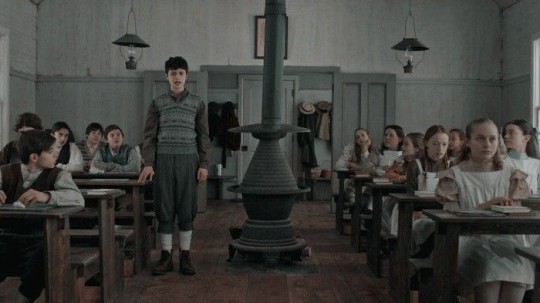
As mentioned above, wealthy and aristocratic families would usually attend established schools or attend school at home. They would be provided any equipment they needed. If they attend school, they would often wear a uniform. Some schools had multiple variations of the uniform for different activities. Many of the schools attended would be boarding schools. Boarding schools offered education to those who boarded and day students, however day students were often looked down upon as lesser than.
Poorer schools would be relient on donations and fees paid by students. As mentioned above, there may be a building reserved for classes - sometimes an designated schoolhouse or a teacher's home or a public building such as a gathering house or sometimes even outside - hedge schools. Equipment would be provided by the school. Uniforms at poorer schools were not a thing but students were expected to show up neat and tidy.
Corporal Punishment
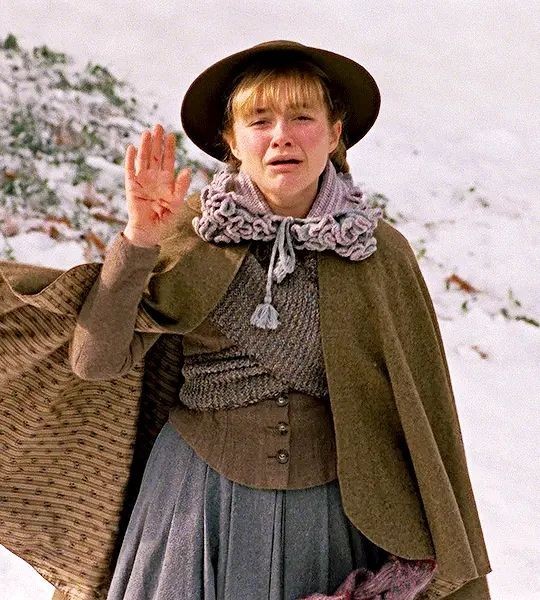
Corporal punishment at schools was the go to punishment for students. Teachers had free rein to strike children for mistakes and bad behaviour. Punishments include insolation, physical stress positions such as standing on a chair all day, getting objects thrown at them, being slapped on the back of the legs with a cane, being rapped on the palms or knuckles with a crop or ruler. Students may also be humiliated by teachers through the use of dunce hats, encouraging other children to bully them or by the use of verbal abuse. Corporal punishment did extend to all classes except for royal children since that was either taken by proxy by whipping boys or left up to parents.
#Fantasy Guide to Education#Fantasy Guide#writing#writeblr#writing resources#writing reference#writing advice#writer#spilled words#writers#Writer's research#Writer's resources#Writer's reference#writer's problems#Writing help#Writing resources writing reference#Writing reference writing resources
921 notes
·
View notes
Text
The Violence of Conformity: on Queerness, Shame, and Vampirism
As we all know, and as I feel I must express again - the metaphorical layers of Nosferatu (2024) consist of several complex, frequently intersecting social themes. Some of them, admittedly, exist a story or two below the surface-level discussions; but that makes them no less influential in regards to the primary plot, and they demand the viewer's exploration just the same.
This is especially true in regards to Eggers' approach to homoeroticism. Its presence within the film itself is unsurprising - implicit, or even explicit, expressions of queerness are a hallmark of gothic (and especially vampire) media. In the case of Nosferatu, this narrative vein provides an undercurrent to almost every aspect of the story; and, because I can't stop thinking about it, I'm making it everyone else's problem.
The Hutters are queer, biting is a metaphor, details under the cut.
To begin with, I must clarify that a queer reading of Nosferatu is not an external introduction. While that lens may be applied to any narrative, given a thorough enough discussion of gender roles, sexuality, and cultural context, it has always been a natural - if sometimes unspoken - component of gothic horror. Elements of it are observable in classics like Frankenstein (Shelley), The Picture of Dorian Gray (Wilde), and even detective fiction offshoots like The Hound of Baskervilles (Doyle), etc; and within the vampire subgenre, it is practically a requirement.
That, like many other things, may be ascribed to Lord Byron and his ever-enduring cultural legacy. In the year 1819, at the Villa Diodati in Switzerland, he challenged his illustrious group of friends to each write a ghost story; and while only two achieved any sort of prominence, that much was sufficient to alter the history of the horror genre. One of these was Mary Shelley's Frankenstein; the other was The Vampyre by Dr. Polidori.* As the title suggests, it was the first Western work of fiction that featured such a monster - and, in doing so, it set the blueprint for countless others to follow. Since then, the genre has been defined by the shape of the dark, hedonistic, and dangerous Lord Ruthven, who was unmistakably modelled after Byron himself.
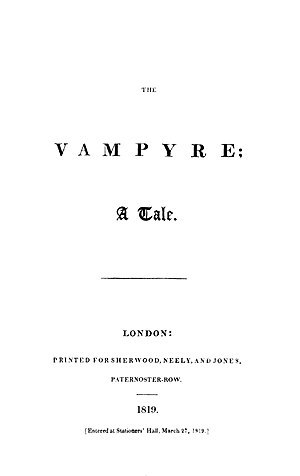

As a character, Ruthven is confident, dominant, manipulative - and brooding, on occasion. His interpersonal approach is defined by a sort of hypnotizing, seductive, possessive, most certainly ill-advised allure. The overall impression is devilish; and that is indeed the point. Within the thematic framework of The Vampyre, Ruthven represents temptation of all kinds. He never hesitates to indulge himself; and so, once he is bored with cards and brothels, he has no qualms about fixating his appetites on Polidori's main character, Aubrey.
Their relationship is notably homoerotic. Despite - or, perhaps, even complemented by - Polidori's amateurish style, the text demonstrates a genuine, striking sensuality between them. In 1819, this easily fell in line with the rest of Lord Ruthven's characterization; and, following The Vampyre's a rapid rise to popularity, vampirism became a shorthand for any "sinful" - or, socially forbidden - sexual expression.
Given the numerous restrictions of the time, most of which persist today to a degree, this includes not merely abusive or incestuous, but also queer, interracial, and extramarital relations - as well as anything involving kink dynamics. From Ruthven, we get Carmilla (LeFanu), Dracula (Stoker + adaptations), and even relatively recent installments like Lestat (Rice).**
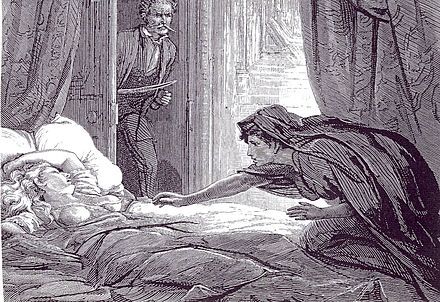
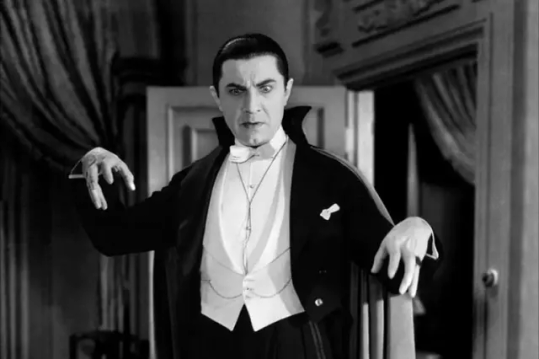

The premise of Nosferatu is no exception. One of the most famous cases of copyright infringement, and a triumphant testament to the historical/preservationist value of media piracy, Murnau's 1922 silent film survives - against explicit orders of the Stoker estate; and, being the literary bastard child of Dracula himself, Orlok maintains many of the same characteristics as his predecessor.
Among these is his implicit and classically vampiric queerness. Like the rest of the film, it is amplified in 2024 - and especially prominent in the first act, in which Thomas Hutter arrives to Orlok's castle.

It is evident from his earlier characterization that Thomas is a repressive type. More so than Aubrey or Jonathan Harker, he keeps his head down, obstinately ignoring the web of fears that shape his daily existence; and it is a monster's narrative duty to expose and realize every single one.
Granted, social circumstances do play a role in this situation. Aubrey has wealth and status; Jonathan Harker has friends and a stable, loving marriage; and Thomas Hutter has neither of those things. Without the benefit of money or community, he lives within a world that is almost as restrictive as Ellen's. His personality is defined by his similarly desperate desire for respect; and his behaviour throughout the film is informed by that underlying pattern. It manifests, most prominently, as a near-compulsive, yet formulaic, adherence to social expectations. He chases after a promotion, marries, gives his wife flowers she didn't want - and, in the same breath, dismisses her "childish fantasies", not out of any malicious intent, but simply because it is supposed to be his duty as a man and husband. It is a destructive cycle of indignity and overcompensation - and I believe it is essential to acknowledge that it's motivated, in great part, by his financial insecurity. As a self-described "pauper," Thomas is anxious to prove himself to his ruthless, unforgiving society - because if he does not, he runs a very real risk of losing even the few comforts he has managed to scrape together.
This threat of destitution is an act of violence. Implicitly, constantly, in consequence of daring to exist, Thomas is being held hostage - unless he conforms.
His sojourn at Orlok's castle is, therefore, peppered with evidence of his superstitions, his social class, and his weakness. Orlok - whom he eventually finds slumbering in the dungeon, the symbolic core of the building itself - is its culmination. What Thomas sees after opening the casket is a nude man, always and never dead, who is trying to take away his wife and imprison him, like a damsel, in a castle. He is horrified; and the implication is blatant. In context with everything else, the deeply sensual, lingering brutality of Orlok's attack is symbolic of the one last thing that Thomas is repressing - and has been for so long that facing it is unthinkable. Still, he can do nothing to resist Orlok - who pushes him to annul his heterosexual marriage, subdues him, bites him; and drinks from him, night after night.

Even during daylight, Thomas fails to destroy his tormentor. In the story sense, he cannot do it because Orlok is a vampire; on the symbolic level, we understand that he cannot kill his own nature.
It goes without saying that this experience is violent; it is both grotesque and shockingly, blatantly lewd. It is traumatic. It is euphoric. It is a form of sexual assault, as far as the biting - a naturally penetrative act - is concerned; and, crucially, it is also Thomas' own repressed desire forcing him to know it. His fear and self-disgust are made flesh in Orlok. Unwanted Desire versus Unwanted Advances; it is a classic gothic paradox - and, in the end, he is unable to accept it. He flees, back to Ellen and the familiar comfort of repression.
Curiously, Ellen herself - who is also distinctly queercoded - presents a depiction of an alternate path.
Like Thomas, she begins the film rigidly repressed and doing her utmost to conform to the established heterosexual social standards. The most prominent factors behind Ellen's oppression are ableism and misogyny - both rooted in things she cannot possibly hide. Her seizures are extremely noticeable to say the least, her neurodivergence affects every conversation she has with the people around her, and all of them perceive her as a woman first and a person never. As the film goes on, it becomes increasingly clear that this emulation of a happy marriage requires constant and agonizing effort to sustain; but while she is also blatantly queercoded, and this queerness definitely contributes to the way she is treated (e.g. by Harding, who views her as a threat to his own marriage), her struggle in maintaining her union with Thomas is not necessarily rooted in a lack of sexual attraction.
The issue is, rather, its "inappropriate" manifestation. Ellen is sexually dominant. Her desires are carnal (and, as the original script implies, mildly sadistic). In a society that expects women to be both innocent and submissive, limits their financial opportunities, and threatens the nonconforming with institutionalization or abandonment, she is caged.
Unlike Thomas, she is aware of that and resents it accordingly - which is not to say that she doesn't feel overwhelming guilt in regards to her sexual inclinations. She absolutely does; and it is interesting to note here that her own pain, in this case, manifests as attacks on her husband and Anna.

This is the part of the story that actively deals with Ellen's queerness. It is evident that she has lived her entire life with the idea that such feelings themselves are sinful; her desires are already unacceptable, even within the sanctity of a heterosexual marriage - thus, actively pursuing another woman would be monstrous. In this interaction, however subtle or unspoken (and, on Anna's part, likely unrecognized), Ellen perceives herself as an aggressor. This is the reason her friend is attacked directly after they share a private, tender moment together - true to the classic gothic vampire tradition, Orlok is, consistently, the direct manifestation of Ellen's shame. He drinks from Anna's breast (the characteristic bite notably favoured by Carmilla - the original lesbian vampire); he destroys the Hardings' perfect nuclear family; and Friedrich Harding blames Ellen and her "fairy ways." Symbolically, their suffering is her punishment - both for feeling a brief moment of queer affection (guilt, fear - direct, setting-driven), and for refusing to indulge it (self-acceptance, rebellion - metaphorical, represented by Orlok).
Still, despite her fear and guilt, Ellen knows that she has done nothing wrong by following her "nature." Her queerness is inherent to her - much like her disability, or her psychic gift; and it is no accident that, among the human characters, the latter is only truly identified by the remarkably eccentric, disgraced, flamboyant, cat-loving, unmarried, bohemian Von Franz. Even though he might be better-adjusted to their surrounding society than her, he still decidedly exists on its outskirts. There is a familiarity of recognition between them, as well as the particular dynamic of a fresh and uncertain fear vs a resigned bitterness that alludes to an interaction between two different queer generations. Even as he is unable to promise her a happy ending, he confirms that she was meant for greater things than the world around them would allow; and that, in my opinion, marks a turning point.
Prior to her conversation with Von Franz, the only validation Ellen has ever received was from Orlok - which posed a moral complication. He was and is a monster, and as such, she believed him to be, fundamentally, a "deceiver." Because of this, she could not bring herself to entirely accept what he was saying; but, conveniently, Von Franz provides an alternate opinion. He stresses that her gift is not only powerful, natural, and inevitable, but also inherently beautiful and sacred.
This is a drastic shift from the way Ellen is normally perceived by humanity. The story consistently demonstrates that the other characters dismiss, infantilize, or condemn her out of turn; however, in this new philosophical context, her night of passion with Orlok - or, the city's only hope for salvation - becomes a supremely important, adult, and holy act. In a spiritual sense, it is equivalent to a marriage; and the film frames it as such.

Like a father, Von Franz gives her away. Despite his well-established monstrosity, Orlok is tender with her to the point of reverence; and she pulls him close - as unnecessary or selfish as that may be. It is, after all, a metaphor. By embracing the Vampire, Ellen embraces the physical representation of everything she had once considered ugly in herself. In regards to her queerness (as well as her psychic power/neurodivergence/disability/personhood), it is a triumphant moment of self-acceptance.
Ellen's arc therefore ends in sublimation. Meanwhile, Thomas is left behind; over the course of the film, he has been unable to let go of the structures that have directed his thinking and behaviour throughout his life - and yet, at the same time, he has also seen them fail, over and over. Knock betrays him, Sievers is out of his depth; Thomas himself cannot be a hero, and Harding - his glittering ideal - crumbles, consumed by grief and madness. The finale, therefore, leaves him on a precipice.


It is a classic moment of deliberation - epitomized, perhaps, by The Matrix (Wachowski Sisters, 1999), in its iconic "red pill/blue pill" scene. As much as the interpretation of it has been twisted over the years, the fundamental, intentional meaning of it is inherently queer; it is about weighing the danger and value of awareness against the meaningless bliss of ignorance. These narrative points are most frequently framed as a beginning - but for Thomas, that is how the movie ends.
He could return to the prison of his daily existence, repress everything he truly feels once more, and suffocate himself in a stranger's life. Before him, Ellen and Orlok depart into a "sea of fog" - an unknown, terrifying, beautiful alternative. It is a promise of freedom and a guarantee of struggle. He sees an example of what he could become, in them and in Von Franz. Their society - and ours, to a degree - is unforgiving of deviation, yes, but the story has also forced him to recognize that acquiescence is not the only option; nor is it actually enough to protect him or his loved ones. Within an oppressive society, safety is always subject to an implicit transaction; and as the finale of Nosferatu makes painfully clear - Orlok may have been in covenant with the Devil, but Harding is the one who sold his soul. The question, now, is whether or not Thomas can bring himself to ignore that.
I know what I would personally wish for him - a full and vibrant life, somewhere on the edges of polite society, that allows him to delve into the eccentricities he never knew he had. He could get into the occult himself; maybe even meet a dashing vampire hunter who would sweep him off his feet and shock his lingering sensibilities every morning (and if the man's a cowboy, even better). However, the point is that we do not know what he will do or what will happen. A life is always in flux. Regardless of our circumstances, there are still a few things we get to choose for ourselves, and a precipice is also sometimes an opportunity for a leap of faith.
I hope, most affectionately, that Thomas Hutter jumps off a cliff.
*POLIDORI - Dr. John William Polidori, who may indeed be considered the creator of the modern vampire genre, graduated from Ampleforth College in 1815 with a thesis on sleepwalking. It's not exactly relevant; but, in the context of Nosferatu, rather apt. I would've really liked to see his thoughts on it, seeing as it's such a perfect intersection.
**LESTAT - being blond, Lestat does stand out from the primary archetype in the visual sense; but the current discussion is more in the realm of personality.
#`nosferatu#nosferatu 2024#nosferatu (2024)#thomas hutter#ellen hutter#count orlok#friedrich harding#anna harding#von franz#willem dafoe#lily rose depp#nicholas hoult#bill skarsgård#vampires#vampirism#dracula#carmilla#gothic horror#horror film#horror film analysis#nosferatu meta#queercoding#literature#film#queer fiction#queer lens#vampire#gothic romance#emma corrin#aaron taylor johnson
119 notes
·
View notes
Note
I'm interested in your thesis that liberalism is related to desire for security. To me it seems completely counter-intuitive since conservativism is the primary political ideology that is characterised by desire for rules-based security, and liberalism with its eponymous focus on "freedom" is more of a counter-movement to that. We may have different definitions of liberalism (I'm in Europe) and I haven't read any of the authors you listed, so I dont quite understand where you're coming from. If you'd like to expand on that a bit - especially how you'd place conservativism in that analysis - I'd like to read it. :)
ty for the question it's a helpful one! hopefully I can actually spell out the broad strokes without just starting to write the book. (I'm not sure I can.) this is all preliminary tracings so I welcome comments, questions, criticisms.
let me cut it to the size of a paragraph: my view is that "security," construed broadly, is the implicit or explicit value underlying basically all of liberal political philosophy and statecraft; this claim is fundamentally linked with my reading of liberalism as a form of legalistic, technocratic aristocracy (literally: "rule of the best"), which wears the skin of democracy as long as its rule is not at risk.
okay, so, working definitions of terms.
What do you mean by liberalism? What about conservatism, isn't that a better example of what you've identified?
Liberalism is a bunch of different things falling under an umbrella term. I find the term "ideology" slippery, so I'm going to try and avoid it here.
When I use the term I am referring to a particular lineage within the history of political thought. That includes a lot of different political actors - philosophers and writers, workers and activists, domestic and international statesmen. Liberalism is not just a particular structure of belief or self-identification held by people or political parties. Rather, I see liberalism as the organizational principles of global capitalism, the mode of thought proper to capitalism's sustenance via the management of the modern state.
My view is that the two things you've highlighted are the broad, self-justifying narratives of these different modes of political thought. "Liberalism is about guarantees of equality, rights, and freedoms, and conservatism is about stability through the preservation of social tradition and culture." I will note that when spelled out in the abstract like this, these things are not actually in inherent contradiction with each other. When you break them down in practice or dig through the details of thought, you find a very different picture. Liberal political thought's values, on investigation, are only about freedom and equality and democracy insofar as those things secure property and the rule of capital. Instead, the substantive values of liberalism are revealed as security, private property, aristocracy (i.e. that "the best" should rule), expansionist empire, "the defense of civilization."
The distinction I would draw, if I wanted to distill the two down, is that conservatism demands obedience as an absolute condition of authority, that the possession of the authority is sufficient justification for obedience (the power wielded by earthly authorities, or perhaps capital itself, being a microcosm of the power wielded by a god). Liberalism demands obedience because it claims that existing in society entails a procedural buy-in; the justification for soliciting obedience is grounded in appeals to reason and practicality. (John Locke's notion of "tacit consent," JS Mill's claim that despotism is an acceptable form of governance for "barbarians," or John Rawls' claim that "outlaw states" can be disciplined by liberal democracies for their alleged cultural failings.)
What about security?
If we step back from the ways in which the concept is historically and morally loaded (and Neocleous makes a convincing case why we shouldn't), we can conceive of security as an affect of predictability. We might think about it as the ability to wake up each day and not be worried about how you're going to feed and reproduce yourself, or that you might be hurt or killed or get sick, or that whatever projects you're investing your time and attention and values in will be taken away from you. This sort of risk-calculation can be on an individual or collective level: thinking about the people you surround yourself with, or that live in a given place, or potentially the whole planet as one integrated system.
On one level you might say life is inherently insecure by virtue of our relatively equal vulnerability to harm or death. There's always the hypothetical possibility that you could get really sick or freak weather could ruin your surroundings or you could fall in a hole and die. However, if the place you live is surrounded by holes, that's a very different type of insecurity, and your risk-calculation and predictions are suddenly vastly different from random events; even more so if there is some kind of agent, will, or specific force that can be identified as the cause of the insecurity.
When I say security is the central liberal category, that's not to necessarily say that actually having "security" is bad. Experiencing emotional security might be good (though maybe not ideal if you are actually extremely insecure); likewise, feeling "insecure" does not necessarily imply the actual absence of security. What's relevant is how liberalism defines security and its absence.
~~~~
My position is that liberalism, and its antecedent political economy, has a fundamental worry - conscious or unconscious - that class society (or "civilization") is inherently insecure or unstable, and offers specific answers for resolving that tension.
What I mean by "inherently insecure" is that the struggle between classes consistently generates a mass of people that have little to nothing, and a minority of people that have everything. See J.S. Mill, bemoaning this as a problem in Considerations on Representative Government:
In all countries there is a majority of poor, a minority who, in contradistinction, may be called rich. Between these two classes, on many questions, there is complete opposition of apparent interest. We will suppose the majority sufficiently intelligent to be aware that it is not for their advantage to weaken the security of property, and that it would be weakened by any act of arbitrary spoliation. But is there not a considerable danger lest they should throw upon the possessors of what is called realised property, and upon the larger incomes, an unfair share, or even the whole, of the burden of taxation; and having done so, add to the amount without scruple, expending the proceeds in modes supposed to conduce to the profit and advantage of the labouring class?
See also Hegel, in Elements of the Philosophy of Right:
When a large mass of people sinks below the level of a certain standard of living - which automatically regulates itself at the level necessary for a member of the society in question - that feeling of right, integrity, and honour which comes from supporting oneself by one's own activity and work is lost. This leads to the creation of a rabble, which in turn makes it much easier for disproportionate wealth to be concentrated in a few hands. [...] Poverty in itself does not reduce people to a rabble; a rabble is created only by the disposition associated with poverty, by inward rebellion against the rich, against society, the government, etc. It also follows that those who are dependent on contingency become frivolous and lazy, like the lazzaroni of Naples, for example. This in turn gives rise to the evil that the rabble do not have sufficient honour to gain their livelihood through their own work, yet claim that they have a right to receive their livelihood. No one can assert a right against nature, but within the conditions of society hardship at once assumes the form of a wrong inflicted on this or that class. The important question of how poverty can be remedied is one which agitates and torments modern societies especially.
This is not a very tenable or secure long-term situation - it will lead to unpredictable confrontations between classes - unless the parties involved find some solution that makes it tenable.
In my view, liberalism offers a very adaptable solution: the modern state and legal system. Instead of the collection of scattered/inefficient/arbitrary systems that characterize pre-industrial power - heredity, honor, sumptuary codes, ritual, personal relationships, traditional obligations - we find (or rather, make) a geographically bounded, unified nation that operates on a set of general principles, a common language both literal and political.
Things like money, markets, a robust system of positive law and mechanisms to enforce it, and the potential for reform strike a balance between 1) formalized, impersonal, predictable outcomes that ensure the sanctity of property goes undisturbed and the "rule of the best" continues - contracts and elections follow the same basic principles, and evaluating harm can be boiled down to "amounts of money" or "years spent in prison" - and 2) allowing for enough adaptability to respond to new circumstances, new innovations, and new crises. For an example, see Adam Smith, in The Theory of Moral Sentiments:
Would you awaken the industry of the man who seems almost dead to ambition, it will often be to no purpose to describe to him the happiness of the rich and the great; to tell him that they are generally sheltered from the sun and the rain, that they are seldom hungry, that they are seldom cold, and that they are rarely exposed to weariness, or to want of any kind. The most eloquent exhortation of this kind will have little effect upon him. If you would hope to succeed, you must describe to him the conveniency and arrangement of the different apartments in their palaces; you must explain to him the propriety of their equipages, and point out to him the number, the order, and the different offices of all their attendants. If any thing is capable of making impression upon him, this will. Yet all these things tend only to keep off the sun and the rain, to save them from hunger and cold, from want and weariness.
In the same manner, if you would implant public virtue in the breast of him who seems heedless of the interest of his country, it will often be to no purpose to tell him, what superior advantages the subjects of a well-governed state enjoy; that they are better lodged, that they are better clothed, that they are better fed. These considerations will commonly make no great impression. You will be more likely to persuade, if you describe the great system of public police which procures these advantages, if you explain the connexions and dependencies of its several parts, their mutual subordination to one another, and their general subserviency to the happiness of the society; if you show how this system might be introduced into his own country, what it is that hinders it from taking place there at present, how those obstructions might be removed, and all the several wheels of the machine of government be made to move with more harmony and smoothness, without grating upon one another, or mutually retarding one another’s motions. It is scarce possible that a man should listen to a discourse of this kind, and not feel himself animated to some degree of public spirit. He will, at least for the moment, feel some desire to remove those obstructions, and to put into motion so beautiful and so orderly a machine.
In legal terms, liberalism entails a commitment to specific kinds of procedural guarantees (formal equality and formal liberty as guaranteed by law) that allow for different substantive content to fill in the gaps between those procedures. A philosophical way to look at it is that liberalism adopts agnosticism on what "the Good" is besides a floor-threshold of what is acceptable (rights), in order to allow for "the Good" to be worked out through time and practice.
This is something I regard as both the central strength and weakness of liberalism as a philosophy of governance: its procedural flexibility allows for the reuptake of hostile forces - anti-liberals are pushed to fight on liberal terrain or risk irrelevance - but also allows competing movements that are designed to undermine some aspect of the liberal project.
To be clear, the liberal answer is not the only possible one, it is just the one that most characterizes modernity. A different answer might be religion, or some form of arbitrary authority: your proper place is servile, but your reward will be eternal bliss in the hereafter, or the favor of your lord, or the emotional satisfaction of doing what you're meant to do. (This is what I would describe as "the traditional conservative answer.")
Another answer, that of the Hitlerites, synthesizes the liberal and the religious answer and ramps a few things up: all of existence is inherently insecure, and made even worse because we are besieged with enemies within and without. but we can secure a future for that nation, for your children, through expansion and purification. (This is the "reactionary" answer.)
A final answer says that there is no true solution that can make class society tenable: that we have reached a point in the history of class conflict where we, every day, reproduce and participate in a spiraling system that depreciates all the things it needs to function, that constantly absorbs more raw material into its maw, and while the ruling classes and the managers can shift crises around or find innovative ways of managing them, the crises themselves can never truly be resolved so long as the rule of capital is maintained. It can only end in revolutionary upheaval "or the common ruin of the contending classes."
To be clear, that's what I think the stakes are of the project: the capitalist security state is in the middle of a substantive upheaval in its priorities as climate change worsens and the hegemonic role of the USA begins to wane, manifesting in prominent battles over the family/reproductive labor and immigration. All of these are fundamentally about the modern state's sense of insecurity as a result of problems made by class struggle. The ruling classes are competing between the right-wing, who want to build extensive fortresses as a buffer against climate refugees while hyperexploiting a terrified, disciplined underclass of migrant, domestic, and third-world labor, and the "liberals," who want to figure out a techno-managerial fix like geoengineering the planet (and making decisions about who, and where, will receive the "benefits" of that "mitigation") while hyperexploiting a terrified, disciplined underclass of migrant, domestic, and third-world labor.
~~~~
to give a rough sense of those different authors, hopefully to clarify how they relate to the project:
Landa’s book The Apprentice’s Sorcerer examines the mechanics of fascist political thought and finds its direct antecedents in "economic liberalism," basically the strain of liberalism that felt its democratic/political twin had gone too far. Through the commitment to formal freedom and equality under the law, liberalism had given the masses the opportunity and language to articulate their interests, fight for those interests in government and civil society, and potentially win (in the process disrupting society and the balance of class power). In some places - particularly France, Haiti, and Russia - the masses went way, way too far for economic liberal comfort!
Fascism then enters the picture as an alternative way to direct the masses, neutralizing that insecurity produced by mass politics - to “save liberalism from itself.” While fascism would deploy the language of anti-capitalism and anti-liberalism (usually in the form of a structural anti-Semitism a la the Strasser brothers, as well as various workerisms or producerisms), in practice, it was and is all financed by the usual Junkers and industrialists as all nationalist projects, and commits to norms and goals that were and are entirely typical of liberal states. Oswald Spengler (the guy who thought Hitler didn't go far enough because he still made appeals to the public) is my favorite example: his "Prussian socialism" is literally just the doctrine that work in service of the nation's wealth makes life meaningful and that workers should be grateful to have it. In other words, what Spengler calls "socialism" is just English political economy with a Prussian nationalist twist.
Geoff Mann’s analysis of Keynes’ General Theory and Keynesianism more broadly treats Keynes as participating in an intellectual legacy (preceded by Hobbes, Robespierre, and Hegel) of immanent critique of liberalism, one that currently sets the terms for "left politics" as hesitancy and fear of a revolutionary scenario because of the insecurity it would bring. All liberalism wrestles with the fundamental insecurity of class society, but Keynes is the rare one that sees this insecurity as essentially irresolvable (though Mann admits that Keynes couldn't quite name it as such). Keynes further regards the fundamental task as saving civilization from itself while avoiding the revolutionary alternative. From In the Long Run We Are All Dead:
“If an immanent critique is one that accepts the basic principles of its object, Keynesianism is simultaneously an immanent critique of liberalism and of revolution. It is the liberalism of those who (however reluctantly) acknowledge the continued historical legitimacy of revolution but claim to render it unnecessary, to “revolutionize” without revolution. One certainly might say this is impossible, and perhaps, in the long run, that is true. But, as Keynes himself said—and his point was not metaphorical—“in the long run we are all dead.” In the endless “short run” moments of deferral between now and then, the problem of maintaining civilization itself is the most pressing task of all.”
Mark Neocleous writes extensively on the concept of security and its relationship with the state, building his work around a younger Marx's claim that "security is the supreme concept of bourgeois society." This has obvious connections to this project. However, a lot of his focus is specifically on the more overt forms of state power, specifically war and police powers - I want to take things a step further (through legal philosophy) and argue that this emphasis on security is embedded in the structure of law itself, and not merely military force or the police power.
179 notes
·
View notes
Note
Hi there I have an arms question for you that I'm hoping you might be able to help me with. So it is commonly accepted that swords should not be kept in their scabbards long term, especially wood and leather ones as they absorb moisture and can end up trapping moisture on the blade and cause it to corrode. Which makes sense and is why most museums seem to try and store their swords out of the scabbard. My issue is I haven't been able to find any hard sources about if this is true or not. Whenever I try to find any sources I just find forum posts and nothing with research to back it up. Are you aware of any sources on the proper care and storage of historic swords?
Storing any carbon-steel blade - kitchen knife or antique sword - for a long time in a possibly damp container - drawer or scabbard - is not a good idea, and the kitchen knife is far more likely to be taken out for use and any incipient corrosion dealt with.
The sword is likely to just hang there, being admired from a distance, until one fine day it's brought down, drawn and OMG Look At The State Of It...!
But, am I aware of any (reliable) sources for care and storage of historic swords?
Unfortunately, no. :-<
*****
What I know is the care and maintenance of modern reproductions, so rather than give incorrect information which might potentially cause irreparable damage to some genuine artefact, I recommend that you send this same question to:
The Royal Armouries, Leeds, England ([email protected]).
The Wallace Collection, London, England ([email protected]).
The Metropolitan Museum of Art, New York, USA ([email protected]).
Conservation advice from any of those sources will be reliable and, based on past experience, they'll all respond.
*****
NB - I've seen "how to restore..." info on-line which is destructive to both historic and monetary value, and I can't shake the feeling that some - though not all, though THEY often require fully equipped workshops - YouTube channels deliberately create "aged items" which they then "restore".
*****
Japanese shirasaya ("white", i.e. undecorated) scabbards are used for storage and transport, though blades stored that way would certainly be inspected on a regular basis.

Blades in museums are frequently displayed "bare", with neither scabbard nor hilt furnishings, though that's as much to exhibit tang / blade inscriptions and hamon (edge pattern) detail as to avoid corrosion, like so:

AFAIK most "complete" swords alongside bare blades exhibited like this...

...are the blade's hilt and scabbard mounted on an insert to hold them together and show what the weapon looks like when fully assembled.
*****
A scabbard's function is threefold:
To carry the sword in a convenient manner.
To protect the blade from adverse conditions.
To prevent the blade from doing accidental harm.
Re-enactment back-carry scabbards which work by having big slots in one side or being hardly there at all ignore (2) and (3) in exclusive favour of (1). They never existed IRL.
*****
I've read a few articles by museum staff about conservation of old swords and when to stop - how much cleaning is enough, how much would be too much, preservation rather than removal of patina etc. - but nothing about the whys and wherefores of scabbard storage.
This may be because as history goes further back, original scabbards become much rarer than original swords, and often when a sword and scabbard ARE found together, they've corroded into one another to such an extent as to be inseparable.
This Etruscan bronze sword and its bronze scabbard are very unusual, not just two separate items but almost completely intact, with only the organic (horn or wooden) parts of the grip missing:

It helps that the Etruscan example is bronze, which doesn't degrade in the same way as iron or steel.
This iron or steel Iberian falcata shows the more usual fate - organic material like its hilt scales are gone, as is the wood and leather of its scabbard, leaving only metalwork behind. Despite that, the blade is in remarkably good condition.

Here's a repro showing how it would have looked when complete. A small utility knife mounted on the main scabbard wasn't unusual, and was also done in the late Middle Ages and Renaissance.

The same happened to this Roman gladius: its blade and scabbard frame remain, but the leather, wood and horn of the rest have vanished, taking most of the tang and deep bites of blade with them.

Again, a repro showing how it would have looked when new.

*****
However, sometimes scabbards survive.
This sword was found a few years ago (2020) in the Oder / Odra River in Poland, and though the grip - wood, probably bound with cord then covered in leather - has rotted away, its scabbard is in a remarkable state of preservation.

What the blade's like, and whether it will ever see the light of day without destroying the scabbard, is another matter entirely up to the museum staff dealing with it.

I suspect non-invasive methods such as X-rays or ultrasound will be used: intact period blades are (reasonably) common, intact period scabbards are not.

Scabbards for Important Swords owned by Important People, including - supposedly - saints are another thing, often far fancier than what originally went with the sword, and tend to be looked after appropriately...

...although a couple of these (centre and right below) have survived remarkably well despite just being entombed with their owners.

The non-metal parts of any working sword were, of necessity, replaceable.
If used in battle they would get stained, sticky and smelly. Over the passage of time they might get chipped, torn or broken. Or they might just be "great-grandad's old clunker", not thrown out yet but not maintained any more, because the style of swords has changed since his day so why bother?
Take a look at this drawing by Albrecht Dürer. That's a one-handed arming sword at least a century out of date and maybe two, while the state of the scabbard speaks for itself.

However though definitely not an elegant hand-and-a-half longsword as seen in other Dürer illustrations...


...that old clunker will still work as intended if sharp enough, and the tatty scabbard means bumping into its uncovered point will not be fun.
Been there, done that, Ouch!
*****
Storing / displaying swords out of their scabbards is sound, for the reasons you mention in your Ask.
However this recalls scabbard purpose (1) as listed near the top, since it exposes the bared metal to other risks such as humidity or inquisitive fingers, so some sort of coating is a good idea.
Oil or grease is messy and wipes off too easily, frequently on things better left without it such as clothing, cats etc., so try "Renaissance Wax" which I believe is used on original pieces by actual museums.
I've even read that it was developed by the British Museum though have no solid proof of that so YMMV, but I've been using it on my own repro swords for years, and can confirm that when properly applied (rub on, let dry, buff lightly with soft cloth) it adds a near-invisible layer of protection and does no harm.
*****
Hope This Helps!
*****
ETA (1) - Thanks to @librarianmouse and @pagecommando for reposting this with links to, respectively, the American Institute for Conservation and Forde Military Antiques Sword Cleaning Guide, links I've added here for completeness and my own convenience.
NB that the Forde Guide is very rightly peppered with warnings about what restoration can do to an antique, and that the swords it deals with are (mostly) mass-produced army-issue sidearms rather than one-of-a-kind weapons.
ETA (2) - @dduane asked "Why didn't you mention Blood Rust Guy?" I mentioned him very thoroughly Right Here. If you want an example of sword "care" not to follow, that's a good one.
115 notes
·
View notes
Note
Hi, genuine good faith question if you'd like! How is TOS racist? It was my understanding that the OG Series was like, huge for equality in media?
I’m speaking primarily about the content of TOS itself, not its historical impact - I understand it had various historic firsts in terms of having characters of colour in respectable roles, which I’m not dismissing. My experience with the discourse on here surrounding the show is that people front-load these character representations as emblematic of the show’s progressive politics. Which, if we want to go that route, TOS was contemporary to the US civil rights movement, which provides us with a handy measuring stick to see how TOS actually grapples with race, not just the presence of characters of colour themselves. I'm going to be kind of defensive in this explanation, not towards you specifically, but because I have had this conversation with people online many, many, many times, and so any defensiveness on my part is in anticipation of arguments I know will come up as a result of making the basic claim that a show made in America in the 1960s is racist. I'm also going to be copy + pasting from an older post I've made on the subject since it's been a while now since I've watched TOS so some of the details are fuzzy.
Like okay, the premise of TOS is that the Enterprise, as an ambassador of Starfleet/the Federation, is seeking out new alien life to study. The Prime Directive prohibits the Enterprise crew from interfering with the development of any alien culture or people while they do this, so the research they collect needs to be done in an unobtrusive way. I think this is the first point at which people balk at the argument that TOS is racist or has a colonial conception of the world - the Enterprise’s mission is premised on non-interference, and I think when people hear ‘colonial’ as a descriptor they (understandably, obviously) assume it is describing active conquest, genocide, and dispossession. Even setting aside all the times where Kirk does directly interfere with the “development” of a people or culture (usually because they’ve “stagnated” culturally, because a culture "without conflict" cannot evolve or “develop” beyond its current presumed capacity - he is pretty explicitly imposing his own values onto another culture in order to force them to change in a particular way), or the times when the Enterprise is actually looking to extract resources from a given planet or people, I’m not exactly making this claim, or rather, that’s not the only thing I’m describing when calling TOS racist/colonial.
The show's presentation of scientific discovery and inquiry is anthropological - the “object” of analysis is alien/foreign culture, meaning that when the Enterprise crew comes into contact with a new being or person, this person is always read first and foremost through the level of (the Enterprise’s understanding of) culture. Their behaviour, beliefs, dress, way of speaking, appearance, and so on are always reflective of their culture as a whole, and more importantly, that their racial or phenotypic characteristics define the boundaries of their culture. Put another way, culture is interpreted, navigated, and bound racially - the show presents aliens as a Species, but these species are racially homogeneous, flattening race to a natural, biological difference that is always physically apparent and presented through the lens of scientific objectivity, as "species" is a unit of biological taxonomy. Basically species is a shorthand for race. This is the standard of most sci-fi/fantasy genre work, so this is not a sin unique to Star Trek.
Because of this however, Kirk and Co are never really interacting with individuals, they are interacting with components of a (foreign, exotic, fundamentally different) culture, the same way we understand that a biologist can generalize about a species using the example of an individual 'specimen'. And when the Enterprise interacts with these cultures, they very frequently measure them using a universalized scale of development - they have a teleological (which is to say, evolutionary) view of culture, ie, that all cultures go from savage to rational, primitive to advanced, economically simple to economically complex (ie, to capitalist modes of production). And the metrics they are judging these cultures by are fundamentally Western ones, always emphasising to the audience that the final destination of all cultures (that are worthy of advancing beyond their current limited/“primitive” stages) is a culture identical to the Federation, a culture that can itself engage in this anthropological mission to catalogue all life as fitting within a universal set of practices and racial similarities they call “culture.”
This is a western, colonial understanding of culture - racially and spatially homogeneous people comprise the organs of a social totality, ie, a society, which can then be analysed as an “object,” as a “phenomenon,” by the scientists in order to extract information from them to produce and advance state (ie Federation) knowledge. The Enterprise crew are allowed to be individuals, are allowed to be subjects with a capacity for reason, contradiction, emotion, compassion, and even moments of savagery or violence, without those things being assigned to their “race” or “culture” as a whole, but the people they interact with are only components of a whole which are “discovered” by the Enterprise as opportunities to expand and refine the Federation’s body of knowledge.
Spock is actually a good example of what I'm talking about, because he is an exception to this rule - unlike the others in the crew, his behaviour is always read as a symptom of his innate Vulcan-ness, where his human and Vulcan halves war for dominance in his mind and character. Bones (the doctor, one of the main cast) constantly comments on Spock's inability to feel things, that he is callous and unsympathetic, ruled by Vulcan logic to such an extreme that his rationality is a form of irrationality, as his Vulcan blood prohibits him from tempering logic with human emotion and intuition. Now you can argue that Bones is a stand-in for the racists of the world, that Spock proves Bones wrong in that he is able to feel but merely keeps it under wraps, that Vulcans are not biologically incapable of emotion but merely live in a socially repressive culture, but this still engages in the racial logic of the show - Vulcans are a racially-bound species with a single monolithic culture, and Spock's ability to express and feel 'human emotions' is the metric by which he is granted human subjectivity and sympathy.
And on the flip side you have the Klingons - a “race” that is uniformly savage, backward, violent, and dangerous. In the episode Day of the Dove, where Klingons board the Enterprise along with an alien cloud that makes everyone suddenly aggressive and racist (this show is insane lol), the Enterprise crew begins acting violent and racist, but the Klingons don’t change. They aren’t more violent than before (because they already were fundamentally violent and racist), and they don’t become less violent when the cloud eventually leaves (because they are never able to emerge from their violence and savagery as a social condition or external imposition - they simply are that way). Klingons are racially, behaviourally, psychologically, and culturally homogeneous, universally violent and immune to reason, and their racial characteristics are both physical manifestations of this universal violence as well as the origin of it. The writers and creators of TOS are explicitly invoking the orientalist idea of the “Mongolian horde,” representing both the American fear of Soviet global takeover as well as blatantly racist fears about “Asiatics” (a word used in the show, particularly in The Omega Glory where a fear of racialised communist takeover is made explicit) dominating the world.
This is colonial thinking! Like, fundamentally, at its core, this is colonial white supremacist thinking. Now this is not because TOS invents these tropes or is the origin of them, it is not individually responsible for these racial and colonial logics - these conceptions are endemic to Western thought, and I am not expecting a television show to navigate its way outside of this current colonial paradigm of scientific knowledge. I’m also not expecting an average person watching this to pick out all the intricacies of this and link it to the colonial history of Europe or the colonial history of western philosophy/thought. But this base premise of Star Trek is why the show is fundamentally colonial - even if it was the case that the crew never intervened in any alien conflict, never extracted any material resources from other people, this would still be colonial logic and colonial thinking. The show has a fundamentally colonial imagination when it comes to exploration, discovery, and culture.
I think a good place to end is the opening sequence. The show's first line is always "Space! The final frontier." I do not think the word frontier is meant metaphorically or poetically - I think the show is being honest about its conception of space as an infinitely vast, infinitely exotic frontier from which a globally Western civilisation (which the Enterprise is an emblem of) can extract resources, be they material or epistemic
264 notes
·
View notes
Note
So what’s the modern interpretation of the laws about keeping slaves? I’ve heard that said laws where a lot more kind to slaves then the surrounding nations but, like, it’s still slavery?
Hi anon,
With Pesach coming up, I'm sure that this question is on a lot of people's minds. It's a good question and many rabbanim throughout history have attempted to tackle it. Especially today, with slavery being seen as a moral anathema in most societies (obviously this despite the fact that unfortunately slavery is still a very real human rights crisis all over the world), addressing the parts of the Torah that on the surface seem to condone it becomes a moral imperative.
It's worth noting that the Jewish world overall condemns slavery. In my research for this question, I came across zero modern sources arguing that slavery is totally fine. I'm sure that if you dug deep enough there's some fringe wacko somewhere arguing this, but every group has its batshit fringe.
Here are some sources across the political and religious observance spectrum that explain it better than I could:
Chabad (this article is written by Rabbi Tzvi Freeman, a wonderful rabbi whose words I have learned deeply over the years. He is one of my favorite rabbis despite not seeing eye to eye with a lot of the Chabad movement)
Conservative (to be clear: this is my movement; it's not actually politically conservative in most shuls, just poorly named. We desperately need to bully them into calling themselves Masorti Olami like the rest of the world. It's [essentially] a liberal traditional egalitarian movement.)
Conservative pt. 2 (different rabbi's take)
Reform (note that this is from the Haberman Institute, which was founded by a Reform rabbi. Link is to a YouTube recording of a recent lecture on the topic.)
Chareidi (this rabbi is an official rabbi of the Western Wall in Israel, so in a word, very frum)
Modern Orthodox
I want to highlight this last one, because it is written by the Rosh Yeshiva of Yeshivat Chovevei, which is a progressive Modern Orthodox rabbinical school. They work very hard to read Torah through an authentically Orthodox lens while also maintaining deeply humanist values. As someone who walks a similar (if not identical) balancing act, this particular drash (sermon) spoke very deeply to me, and so I'm reposting it in its entirety**
[Edit: tumblr.hell seems real intent on not letting me do this in my original answer, so I will repost it in the reblogs. Please reblog that version if you're going to. Thanks!]
Something you will probably notice as you work your way through these sources, you'll note that there are substantially more traditional leaning responses. This is because of a major divide in how the different movements view Torah, especially as it pertains to changing ethics over time and modernity. I'm oversimplifying for space, but the differences are as follows:
The liberal movements (Reform, Renewal, Reconstructionist, etc.) view halacha as non-binding and the Torah as a human document that is, nevertheless, a sacred document. I've seen it described as the spiritual diary of our people throughout history. Others view it as divinely inspired, but still essentially and indelibly human.
The Orthodox and other traditional movements view halacha as binding and Torah as the direct word of G-d given to the Jewish people through Moshe Rabbeinu (Moses) on Mt. Sinai. (Or, at a minimum, as a divinely inspired text written and compiled by people that still represents the word of G-d. This latter view is mostly limited to the Conservative and Modern Orthodox movements.)
Because of these differences, the liberal movements are able to address most of these problematic passages by situating them in their proper historical context. It is only the Orthodox and traditional movements that must fully reckon with the texts as they are, and seek to understand how they speak to us in a contemporary context.
As for me? I'm part of a narrow band of traditional egalitarian progressive Jews that really ride that line between viewing halacha as binding and the Torah as divinely given, despite recognizing the human component of its authorship - more a partnership in its creation than either fully human invention or divine fiat. That said, I am personally less interested in who wrote it literally speaking and much more interested in the question of: How can we read Torah using the divinely given process of traditional Torah scholarship while applying deeply humanist values?
Yeshivat Chovevei does a really excellent job of approaching Torah scholarship this way, as does Hadar. Therefore, I'm not surprised that this article captures something I have struggled to articulate: an authentically orthodox argument for change.
184 notes
·
View notes
Note
do you have any text (articles/shorter texts are preferred but i'm perfectly fine with books!) on medical sexual abuse, i.e people being sexually abused by doctors and other medical authorities? tumblr search engines are obviously horrible with helping look through blogs for terms and my experience with researching this has been finding either a. wikipedia grade information or b. "medical consequences of sexual abuse" and most of these texts lead into the ways doctors (always) help people who have been sexually abused, which is now the opposite of what i'm looking for
i have not found a lot on this that's worth reading. there are a few personal-testimonial type accounts from adult patients (eg here) but these tend to be written in the same narrative vein as self-help / recovery books; i haven't found much of interest on the actual topic in these.
then there's a small but growing body of literature on the practice of performing exams on unconscious patients without prior consent, usually focussing on nonconsensual pelvic exams and arguing these constitute sexual assault (x, x, x). this is of course true, but these arguments are virtually always formulated in ways that trivialise consent violations (ie: rape; assault) that occur in other procedures, specialties, or medical settings; also, these texts are heavily indebted to the mary daly esque intellectual lineage of only being able to articulate the concept of rape on the terrain of sexgender essentialism. these texts therefore chronically have nothing of value (even on an interpersonal level) to say about medical rape that occurs outside a very narrow cis-heterosexual imaginary in which the actual facts of the medical profession and its normal professional operations are either completely handwaved as benign, or are understood as being secondary to patriarchy and nought else.
i did read this paper on assault by asylum staff in 19th century britain and there are interesting references you could follow -- but this is just historical analysis; it's not going to get you far if you want information on how often this happens today or on a theoretical understanding of it.
imo this isn't really a topic where the literature is going to become much more useful, at least under the current operating paradigms in bioethics -- fundamentally the reason the literature sucks is because "doctor" is defined as ontologically incompatible with "rapist".
31 notes
·
View notes
Text
Sonic the Hedgehog Analyzer, Issue #65: Misadventures (Part 4)

We're back with another Issue, this time focusing on two different, but interconnected stories. I'm happy to announce that this one features Knuckles and the Chaotix going against the Babylon Rogues, as well as Cream, Cheese, Chocola and Gemerl dealing with Rough and Tumble. It is nothing too plot-heavy, but still a fun read.

We get straight into the action, with Knuckles being pissed off to see the Babylon Rogues stealing stuff from Marble Garden. Storm is ready to scrap, though.

However, since this is Knuckles we're talking about, he can keep up, at least until Storm slams him into the wall. Better luck next time, buddy!

Knuckles is absolutely pissed about the thieves, narrating how he tried to hunt them down, only for them to escape since his gliding is much slower than their Extreme Gear, meaning that he needed to get help.

He is currently at the Chaotix Detective Agency, explaining his situation and asking the detectives to help him track down the Babylon Rogues. Vector points out that, since the Babylon Rogues are professional thieves, they would obviously target Angel Island and all its echidna relics, but Knuckles points out how there are more valuable treasures on the island (like the Master Emerald, I assume). Espio figures they went for the ones that are less guarded or that they have a buyer with specific interests... which might actually be correct in this situation, but that's for later.

Charmy decides to call Amy to help them return the relic, but Knuckles slams the phone down, nearly breaking it as he screams that they can't tell Amy. Ah, the older brother is embarrassed to tell his younger sister he lost the relics and wants to get them back on his own. Yeah, I get it, although Espio calls it ''maintaining a warrior's pride''.
Vector accepts the case, but they'll have to make it quick, since they still have to attend a dinner at Vanilla's.

Their way of finding the Babylon Rogues is... to attack one of Eggman's Egg Bases? What?

Naturally, Eggman is pissed off about people ruining his base, especially considering he hadn't done anything this time... Oh, and he's also alive after Shadow used Chaos Control when Eggperial City blew up during his last appearance. Yeah, that's not surprising. After all, this is Eggman we're talking about.
In any case, it turns out that the reason they went after Eggman was because they assumed that he was the one who hired the Babylon Rogues. Not gonna lie, I would've assumed the same, but that doesn't make Eggman's reaction less hilarious. It's like someone trashing your backyard because they believed you hired someone to steal their package from their porch.
Eggman, naturally, is pissed off at Vector for assuming that, while Vector tries to explain himself and fails.

Eggman can only sigh in frustration about the whole misunderstanding, explaining how his robots keep track of whatever he takes, and when Knuckles explains to him that it's the same relic he stole earlier, Eggman points out that he basically has no reason to hire the Babylon Rogues, getting even more frustrated when Knuckles responds how the only value that relic has is historical and sentimental rather than having mystical powers.
Eggman basically tells them to get out, with Knuckles and the Chaotix leaving in shame. I kinda feel bad for Eggman here, since he really wasn't doing anything evil to deserve it, but at the same time, I'm laughing my ass off because this was pretty hilarious.

Back at Seaside City, our boys are brainstorming their next move. Vector's next suspect is Clutch, explaining to Knuckles who that guy is and that he might be selling off artifacts. Unfortunately, they lost track of him and they don't know where to even start looking for him. This angers Knuckles, who just wishes things were as simple as finding the guilty party and beat them up.
Same here, Knuckles. Same here.

Charmy and Espio then pop out of nowhere, telling the two how they got a lead and scaring the hell out of Vector. Turns out, Charmy overheard some gossip between a couple of sketchy-looking people, with Espio noting how it was very convenient. However, they don't dwell on it for too long, because Knuckles already left to pursue the only lead they have.

We spot the Babylon Rogues hanging out on a pier, waiting for their client, with Jet and Wave being impatient, while Storm is just having fun using the relics as puppets. Wave jokes how Jet is showing some cultural sensitivity, but Jet just points out how he doesn't want them to get busted before he can sell them. With what money, I don't know, since SEGA doesn't want to show any money in this world.
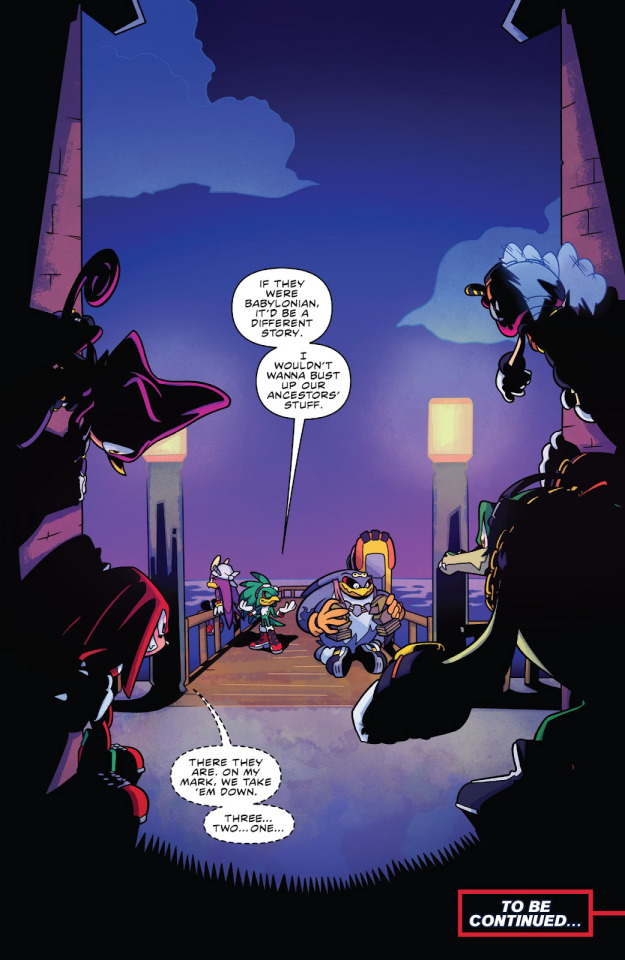
We end this story on a cliffhanger, just as Knuckles and the Chaotix are about to beat up the Babylon Rogues.
Honestly, there isn't really much to say here, aside from the fact that I love seeing Knuckles hanging out with the Chaotix and have the Babylon Rogues involved, so we'll move on to the next story.

This one is about Cream, Cheese, Vanilla, Chocola and Gemerl preparing the dinner party for the Chaotix. They're having fun, only for Vanilla to go blue screen when she realizes they ran out of butter.

Going by Cheese's expression, it seems that Chocola ate the butter, so Gemerl offers to get more, but Vanilla tells him that she'll get it, trusting Cream and the rest of the household to take care of the dinner.
Unfortunately for them, they are being observed by two familiar figures.

Rough and Tumble are back and their latest scheme involves to break into Cream's home and rob it.
Oh, boy...

Cream is determined to keep an eye on the dinner, wanting to make her mother proud by showing how responsible she is, and Gemerl even praises her for her hard work during her previous adventures, which is really sweet of him.
Cream is happy, asking him to set the table in the dining room, only for Gemerl to spot the intruders.
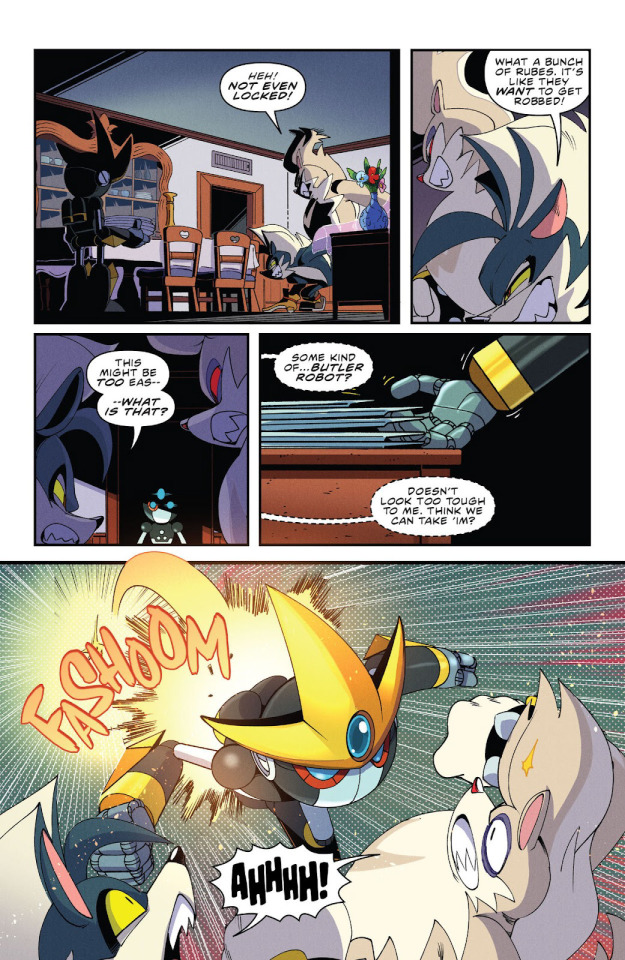
Rough and Tumble are about to mess things up, only to spot Gemerl in the corner, believing him to be some kind of butler robot and thinking they can defeat him.
Yeah, that would be a bad idea for the skunk brothers, given what Gemerl is capable of.

Cream, Cheese and Chocola overhear the scuffle, with Cream being worried about Gemerl, but she can't let the dinner alone since it might burn. She asks Chocola to check on Gemerl instead, the Chao accepting their task.

To Chocola's shock, they find Gemerl fighting Rough and Tumble, the former beating their asses. Chocola rushes back to Cream, with Rough and Tumble going after them, figuring they could take whoever is in the house as a hostage.

We then get another cliffhanger, with Rough and Tumble barging into the kitchen, causing Cream to accidentally knock over some of the food on the stove and resulting in a huge fire.
Sheesh, so much for the dinner party. I hope the Rabbit household has a fire extinguisher to deal with this. I also feel bad for Cream, but I will comment more in the next Issue when we see the resolution of this mess.
As said, this wasn't as plot-heavy as the previous Issue, but nevertheless, it was quite entertaining.
See ya next time!
Links:
#Previous Issue
#Next Issue
#Sonic the Hedgehog Analyzer (Masterlist)
#Sonic the Hedgehog Analyzer#sonic the hedgehog#knuckles the echidna#vector the crocodile#charmy bee#espio the chameleon#team chaotix#jet the hawk#wave the swallow#storm the albatross#babylon rogues#dr eggman#clutch the opossum#cream the rabbit#cheese the chao#gemerl#rough and tumble#vanilla the rabbit#chocola the chao#idw sonic
25 notes
·
View notes
Note
So when it comes to distance in a fictional setting, is metric king? I wrote some fantasy post-apoc recently where the protagonist measured it in Oranges and Aevums (the latter being their own name), but more generally speaking is it worth it to hash out bespoke measurement systems for fictional cultures, do you think?
Oranges as a measurement unit sounds so funny, and a measurement based in... yourself makes surprising sense, given all the measurements based on body parts. Why not YOURSELF?
Well, I would think in a real post-apoc world metric would be king indeed, scientific and technologic instruments are in metric even in the US and you could always get a ruler from a school or scales from a grocery store, so eventually you could get back on track to reforming the metric system. It would be interesting, though, if every society during isolation had slightly different measurements for the same units because of faulty equipment (say, ohms or amperes or even grays) and they had to make a congress to clear things up.
Returning to your main question. My perspective here is the same as conlangs. It's very, very fun to have them, but it's not fun to force your audience to read them. When I write something set in a fantasy or science fiction setting, in my head I'm assuming the characters are speaking different languages and I DO explain them and even give examples of them, but the story itself is written, for both the reader's and the writer convenience, in a language we can understand (Spanish in my case, and then it can be translated). Same with units of measurement. I seldom use direct units of measurement like writing "the ship was 110.3 meters long" (in science fiction, it's often a trap as they force you to stay true to them), when more descriptive language can be used...
In any case, you could do, for the kind of immersion I love, say something like "she was 14 oranges* tall, rather small for her age" and do an asterisk like "*A.N. : 1.39 meters tall". This is very fun when used sparingly, because it gives the worldbuilding obessed reader something to play with, you can do the conversion yourself and learn more about the world, without interrupting the story. Some understandably dislike this approach, but I think that if you know what you're doing, you can hide some pretty deep lore behind it. In one of my favorite retro games, The Ur-Quan Masters, there is an alien race called the Slylandro who live in a gas giant. When they tell you their ancient history, they use their own system of measurment based on the rotation of their planet with its own names like Dranhasa and Dranh. The game actually provides you with the rotation time on "Earth" time, so some dedicated fans did the conversion, and found out the dates fit with major events in the game's past. I thought that was an awesome bit.
But I digress again. Does this mean you should not talk about measurements in your story? No, it can do for very fun plots and digressions, as well as make things more realistic and beliveable. A fantasy world sharing all the same measurement units can be as unplausible as everybody speaking "Common". Let's remember that the current metric system is a modern invention which took a long time to be adopted (and some, well one, country, still resists it). Just take a look at the many, many historical systems of measurement:

This was especially prominent in places like the Holy Roman Empire, where every statelet, county, principality, free city, prince-bishopric, duchy, archduchy, etc. may and most often did have different measurements from each other. Just take a look at how measurements varied from each German region, it's crazy. The systems of weight where particularily important. Before the introduction of standarized coinage, coins also varied not only between kingdoms, but between regions, and even towns, and coins made at different times with different alloys had different values. Rather than money in our modern sense, you could think of them as some kind of 'asset' that could vary in value depending on the circumstances. What's more, those values had to be checked by people who knew what they were working with. Silver and gold content could be weighed, ah, but you need good scales and weights, and someone who knows how to work them! And these people could easily rip you off, or you could lose value accidentally if those scales weren't done just right or fiddled with on purpose. In fact, this is where the word 'Mark' comes from.
It wasn't as easy to take say a 100 something bill and get the change in 1 something coins. There is a very interesting subplot in the anime Spice and Wolf where Lawrence, the trader character, has been paid in gold coins, and he has to trade them into lesser denominations. However, he has to be REAL careful so that nobody scams him given all I told you above. Even getting 'gold' coins was a gamble before modern coinage and banking (another long topic). How much of that is REALLY gold and not an alloy with silver or other metal? Who can you trust to tell you how much your coins are worth? Are they compatible between borders or even time, is this version worth as much as the others? Things that characters in fantasy who have just plundered a dragon's hoard almost never think about. Except in Spice and Wolf.

(here is a gif of Holo to break the wall of text)
This all of course, as again you can see in Spice and Wolf, can make trade very tedious and even unstable. This was one of the reasons why the metric system was so quickly adopted in Europe and then elsewhere; consistent units just allow for easier trade. Lots of other things involving measurement can have a major impact on your story. For one, you NEED consistent and accurate measurement to create even the most basic industrial and scientific equipment. You can wing it for a time like alchemists (and even they knew their measurements) but eventually, you need to measure things to understand them. To have working steam engines, steel production, chemical industries and more, you need to know your temperature is. If you want to do electricity, you need measurements for current, resistance and charge. If you're doing engineering, you need to have lenght, weight and volume very, very clear, or people will die. They don't necessarily need to be universal like the metric system (though it has lots of advantages, being coherent between units and decimal so it doesn't jump between different denominations) but they need to be standarized and measurable.
Most of the above, unless you're writing some kind of encyclopedia about a fictional scientific revolution (BASED BASED BASED) will not affect your characters directly. But IT IS worth keeping in mind for what kind of world your characters are living in. The standarization of measurement units always means SOMETHING in the state of your society, the strenght of the state and centralized authority, the state of scientific understanding (one could say that trying to measure the world was perhaps THE scientific revolution, "Man as a measure of all things"), the capability for industry and the standarization of coinage and trade.
Even if you don't have your characters interact directly with those things, they will interact with them. It's also, like I've said in the examples, fun to imagine characters having to learn or deal with different units of measurement, just as it is fun to imagine them learning new languages or cultural quirks. It's something I've done in the past, in my space opera setting, the worlds descended from the United States STILL use the imperial system, much to the frustration of the rest of the metric human sphere. There is also an alien character who has a hard time to learn human measurements, and that makes her melancholic about her past, as they can't intuitively see the now-extinct measurements she does. Again, man as a measure of all things... this does include other thinking beings...
There's more I could talk about here regarding time, but I did a post about that, though I'm not satisfied with it and will probably redo it in some time at the future. In any case, there's lot to talk about why every calendar in science fiction has 365 days and 24 hours.
As always, if you found this interesting and helpful, I would be very thankful if you gave a tip to my ko-fi! And feel free to ask about anything you'd like!
91 notes
·
View notes
Note
perhaps this it too far off-topic for this blog (and so feel free to not answer) but. what are your opinions on YA as a genre?
lmao well i didn't mention it for nothing
short answer: YA is fine as a genre but i think we should go back to calling it Teen. because it's for teenagers.
long answer: I don't mean that in a derogatory way, and I don't think YA has less value than any other genre. But it is, in fact, meant for children, both by reading level and intended audience. Seeing grown adults with almost entirely YA reading lists is... disappointing(?) to me.
I'm not saying you have to start reading dostoyevsky once you turn 21 (hell, I reread fuckin Warrior Cats over Christmas), I just consider it the fast food of books. sometimes is good! but you need more.
I can't prove it, but I feel like the proliferation of YA amongst adults may be related to the american literacy crisis.
caveat: historically, a lot of minority/POC/queer authors have had an easier time getting published under the YA label because it wasn't taken very seriously, and to this day YA is probably one of the most diverse genres out there. but honestly I don't think this argument as a reason to only read YA has been that relevant for a good 10 years now. I'm willing to bet at least a third of the books in my store's fiction section are by minority authors.
caveat 2: YA has some of the most beautiful cover art i've ever seen. i'll give it that.
#before anyone says 'but YA isn't a genre'#yes it is lol#ask#i blame booktok mostly#i feel similarly about the romance genre except that most romance book covers suck lmao
41 notes
·
View notes